





 |
 |
 |
 |
 |
 |
| home | calendar | tumblr | logistics | books |
emails |
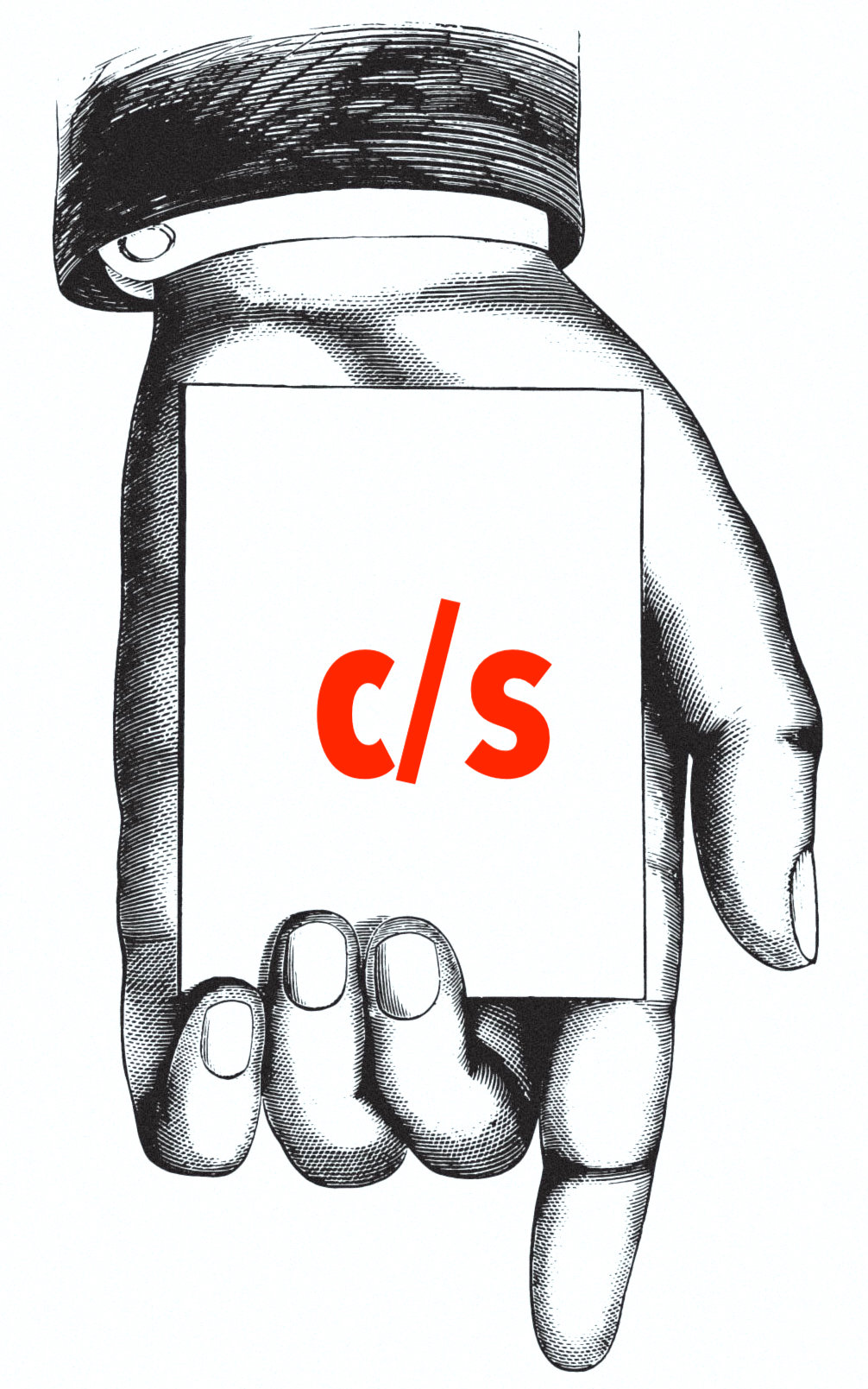 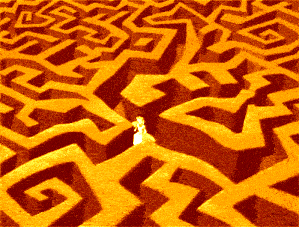
|
||||||||||||||||||||||||||
| ECL 568 | LATAM
580 | MALAS 600A | SPRING 2024 |
||||||||||||||||||||||||||
| The
Sensual Labyrinth |
||||||||||||||||||||||||||
| Chicanx
Comix: Community, Storytelling, and
Social Justice #thesensuallabyrinth24 |
||||||||||||||||||||||||||
| Tuesdays and
Thursdays, 11-12:15 in Hepner Hall 150 |
||||||||||||||||||||||||||
| Professor
William "Memo" Nericcio |
||||||||||||||||||||||||||
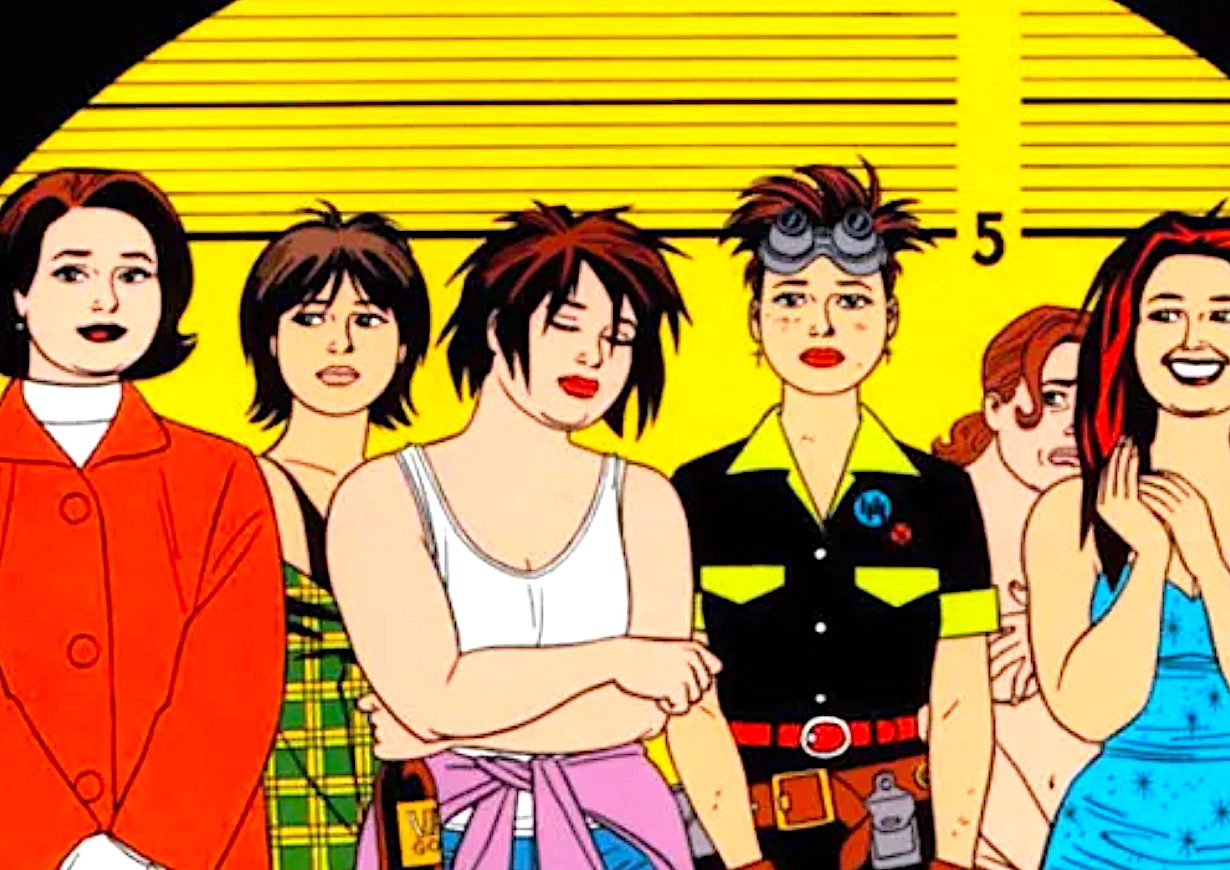 |
||||||||||||||||||||||||||
 ore and more these days, the
literary is being besieged by the visual. Where,
heretofore, literature was known and valued as
words on the page, now, in the 21st century,
readers must supplement their semantic,
hermeneutic understanding with semiotic, pictorial
understandings as well. This is as true in the
mainstream (Kurt Vonnegut's Breakfast of
Champions; Michael Chabon's The Amazing
Adventures of Kavalier & Clay; Humberto
Eco's The Mysterious Flame of Queen Loana)
as it is from emergent literary/semiotic talents
(Gilbert and Jaime Hernandez's Love and
Rockets; Adrian Tomine's Shortcomings). ore and more these days, the
literary is being besieged by the visual. Where,
heretofore, literature was known and valued as
words on the page, now, in the 21st century,
readers must supplement their semantic,
hermeneutic understanding with semiotic, pictorial
understandings as well. This is as true in the
mainstream (Kurt Vonnegut's Breakfast of
Champions; Michael Chabon's The Amazing
Adventures of Kavalier & Clay; Humberto
Eco's The Mysterious Flame of Queen Loana)
as it is from emergent literary/semiotic talents
(Gilbert and Jaime Hernandez's Love and
Rockets; Adrian Tomine's Shortcomings).
Nowhere has the explosion of works
occurred more than in the world of comics --
graphic novels, sequential art, etc. And so it
is that the canons of both literary studies and
ethnic studies must expand to accomodate this
growing medium. In the United States, it has
been in the comic book talents of Americans of
Mexican descent (Mexican-Americans,
Chicanas/os/x) that has most witnessed this
Renaissance. From the early works of Gus Arriola
(Gordo), to the aforementioned Los Bros
Hernandez, to Herblock award-winning political
cartoonist Lalo Alcaraz, to the
feminista-inspired universe of Kayden Phoenix,
comic book history in the United States has
exploded. This class will survey this 20th and
21st century evolution focusing on the works,
artists, communities, and movements associated
with these brilliant artists and writers. But comics will be only the
beginning of our obsessions with all things
visual arts, all things Chicano/a/x, as we will
also dabble in books and movies and photography.
Back in the day, pre-instagram, we could live
with Descartes credo: "I think, therefore I am"
-- but in today's universe, immersed in AI,
dodging digital surveillance (thx Zuckerberg,
gracias Bezos, ya basta Musk) it is more "I see,
therefore I am" or better still, "See me, lest I
not exist at all." Selfie culture, to be sure,
but something that Chicanos/as/xers have been
keen on since Jose Guadalupe Posada's
broadsheets inspired Mexican American civil
rights activists to forge their own semiotic
brand, their own visual arts dasein. MORE COMING
SOON! Note --> Trigger
warning appears below! |
||||||||||||||||||||||||||
| Required Texts (In Progress/Under Construction) 
Our Spring 2024 Lineup of Required Books
THE BOOKS BELOW DO NOT APPEAR IN THE ORDER WE WILL BE READING THEM IN CLASS DURING THE SEMESTER OWING TO COMPLICATIONS WITH THE BOOKSTORE ON CAMPUS ALSO --> do note that the bookstore has been awful about ordering on time so last minute adjustments are to be expected! Click each cover below the Aztec Shops Link to see the correct print edition of all the books we are studying together this semester! Should you buy or rent print editions or digital editions -- the University may well recommend that you go the digital route, but I recommend coming to class with a physical copy of the book we are discussing. Why? So we can literally be "on the same page" during discussions. What about pirated pdfs? In the digital age, anything goes, but pirated pdfs mean the artists/writers go unrewarded for their intellectual labor. Bottom line? You are welcome to pursue what you see fit, but, despite the expense, nothing beats working with the best, printed edition of the book. Last question: should you rent or buy? That is up to you! But remember, your personal bookshelf is like a mirror of the journey of your psyche--a snapshot of the evolution of your imagination.
Empty
bookshelf?
=
Erased
intellectual
legacy
SDSU
Aztec Shops Campus
Bookstore Link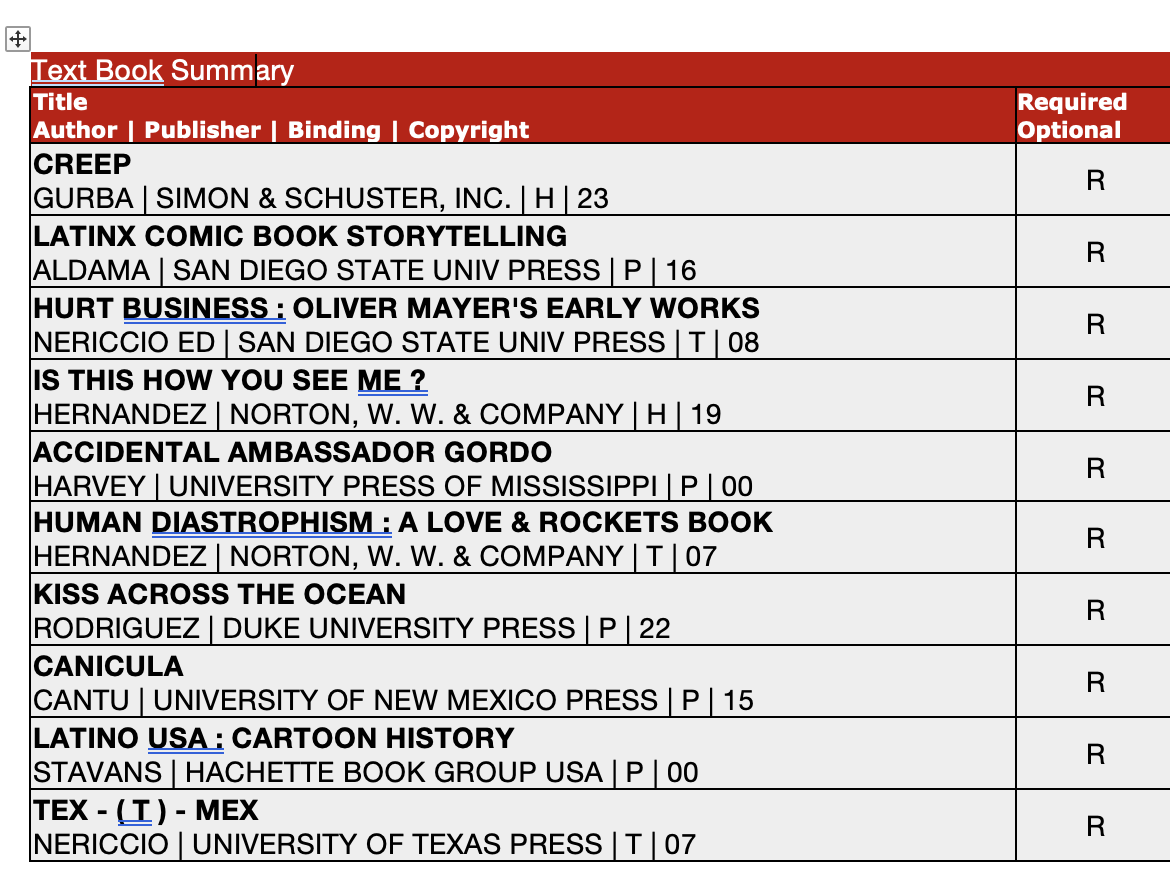 |
||||||||||||||||||||||||||
|
||||||||||||||||||||||||||
| Seminar Logistics How to succeed in our #sensualabyrinths24 adventura!?  s we navigate this crazy experiment of a
class, the first thing you have to determine is who you
are and where you are in your own personal academic
adventure. Are you a MALAS graduate student or a
graduate student from another program taking this as a
MALAS 600A seminar!? That will mean one thing. Or,
alternatively, are you an undergraduate or graduate
student taking this class for LATAM 580 or ECL 568
credit? That will mean another. Let me explain ... s we navigate this crazy experiment of a
class, the first thing you have to determine is who you
are and where you are in your own personal academic
adventure. Are you a MALAS graduate student or a
graduate student from another program taking this as a
MALAS 600A seminar!? That will mean one thing. Or,
alternatively, are you an undergraduate or graduate
student taking this class for LATAM 580 or ECL 568
credit? That will mean another. Let me explain ...As an upper-division or graduate literature and cultural studies class we are going to be serious! But not serious in the "heart-attack" sense of "serious"; more like serious in the "great, now i have to be accountable for my intellectual range, preparation, imagination, and curiosity" sense. So my expectation is that you will enter each seminar session having carefully completed the assigned reading for a given day -- after all, if you do not intend to keep up with the readings, why be part of the adventure? Maybe as a freshman or a sophomore, "doing the reading" would have been enough. I would like to ask a little more of thee! My desire is that you will come to each class on Tuesday and Thursday having both prepared the material by doing the reading, but that you will also have surveyed recent reviews on said work, look up if there is any sexy research on the work or in the field of said work, and, lastly, even, preparing questions (both discussion questions and close-reading-related questions) to share with your professor and your fellow students. When we are undergraduates, it is easy, perhaps, to sit in the back of the room and listen. And while you can still get away with this as a graduate student or advanced English or Comparative Literature major, you must also consider that said silence does your colleagues a disservice. So as we move toward the first class, promise me (and promise yourself) that you will use the time we have together to share the amazing contours of your imagination with our gang of literature and interdisciplinary studies undergraduates and graduate students. Graduate Seminar Presentations (or "you are the professor") -- only for graduate students* 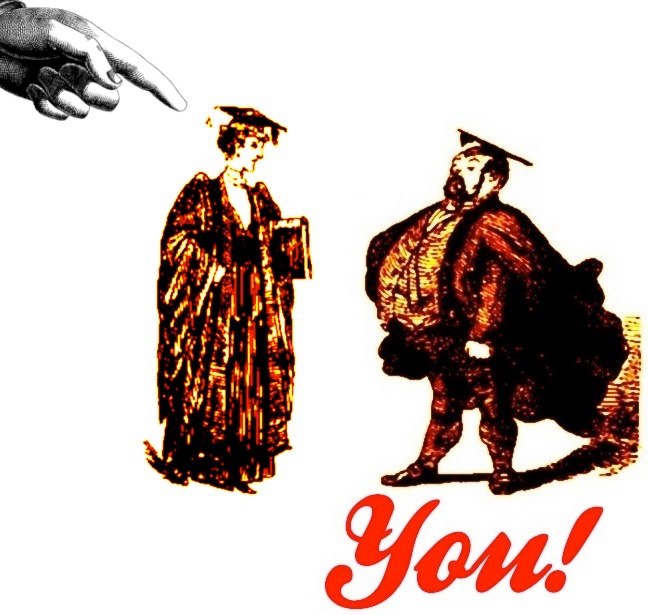 Graduate Student presentations are not
mandatory for this class--however, if you spy an
upcoming work on the reading list and you want to
deliver a 20 minute presentation that will benefit your
development as a scholar, write me at bnericci@sdsu.edu
and give me a heads-up about your wishes! Yes, this will
bless you with "extra-credit" which MAY be of use when
it comes time to determine your grade. *undergraduates
thinking about applying to graduate school can volunteer
as well to give an in-class presentation Graduate Student presentations are not
mandatory for this class--however, if you spy an
upcoming work on the reading list and you want to
deliver a 20 minute presentation that will benefit your
development as a scholar, write me at bnericci@sdsu.edu
and give me a heads-up about your wishes! Yes, this will
bless you with "extra-credit" which MAY be of use when
it comes time to determine your grade. *undergraduates
thinking about applying to graduate school can volunteer
as well to give an in-class presentationMid-Term and Final There will be two exams during the course of the semester -- a midterm and a final exam. You will also have the opportunity to write a final paper in lieu of the final exam. More information on this to follow. Seminar Paper (Optional for both graduate students and undergraduates). It is expected that you will produce an amazing piece of rhetorical excellence in the course of the semester -- a seminar paper or essay. To that end, you will submit to me by noon, Friday, May 3, 2023, via email to bnericci@sdsu.edu, a well-researched, nicely crafted, exquisitely-honed critical essay anywhere from 15 to 22 pages. The essay should be typed, double-spaced, and carefully proofread. What will this beautiful essay be about? That's the fun part! Let us first consider the obvious: you are an advanced undergraduate or graduate student. What does that mean? It means that you are a scholarly apprentice of sorts. You are one in a long line of individuals who aspire to scholarship--someone who aims to produce an exegesis of the first order. Like it or not, one of the things that will determine whether or not you have what it takes to get past the gates at the ivory tower is your writing. It used to be that writing for literary journals was an extended exercise in pain and self-abuse. But the field is changing and so are its journals. That is the easy part. How will you go about imagining this essay? Please have your essay derive or be based in large part on a text, author, director, theme, genre which is part of the required material for our class; moreover, I am also open to you conceiving of your submission to me as a draft chapter from your master's thesis, or a possible submission to critical journal.  Footnote
vs. endnote? MLA style vs. Chicago style vs. APA
style? Footnote
vs. endnote? MLA style vs. Chicago style vs. APA
style? These controversies have been solved for you in advance. As part of your assignment, I want you to immerse yourself in the variety of journals now publishing essays in , literature, film studies, cultural studies, comparative literature and contemporary studies in comparative cultures. You may complete this immersion here at SDSU's Love library, at USD, or UCSD. Some pretty good journals include: american literature, boundary 2, critical inquiry, social text, pmla, south atlantic quarterly, camera obscura and cinema journal. Think of your essay, then, as an exercise in role-playing--any question you might have about format, tone, styles, footnoting tactics and the like will be answered by the editorial policy of the journal you select as your guide. Do please submit with your seminar essay, a copy of one essay from the journal you have selected that represents to you the BEST that journal has to offer. Also, if you can find it, include a xerox of the page in the journal where they tell prosepective contributors how to format their submissions. Do note that our library has great, full-text, online journal archives like project muse and jstor--if you are off campus, you may have to log-in through the SDSU Libweb server reference index to access these invaluable index. If you have any question as to the appropriateness of a journal just give me a call or pull me aside and ask me. What can you write on? Well, just about anything. I imagine the best exercise will be to throw all your books and notes on a table, think about what are some of the provocative issues that have stayed with you during the term and then head off to the library and those endless stacks of scholarly journals. By the time you’ve paged through all those journals and get back to your books and notes, you’ll have a firmer grasp on the goals of your analytical adventure. You’ll also probably have a headache -- welcome to academe. Seminar Paper Prompts Seminar Paper Prompts  I don't usually give out
essay prompts to graduate students--the reason for
that is simple: graduate students should be pursuing
their own line of research, building on the required
readings for the class, but also, then, voraciously
researching hunches/ideas that appeal to THEIR
intellectual sensibility. However, I realize that
not all graduate students in an MA program are ready
for that level of engagement, so I will provide
here, for your entertainment and delight, a short
list of seminar paper prompts: I don't usually give out
essay prompts to graduate students--the reason for
that is simple: graduate students should be pursuing
their own line of research, building on the required
readings for the class, but also, then, voraciously
researching hunches/ideas that appeal to THEIR
intellectual sensibility. However, I realize that
not all graduate students in an MA program are ready
for that level of engagement, so I will provide
here, for your entertainment and delight, a short
list of seminar paper prompts:1. a. Select a journal you adore and want to imagine yourself published in--use it as an editorial template of sorts to guide the completion of your essay. b. Author an original piece of scholarship that speaks to some idea that connects two or three of the works we have read this semester with a couple of recent scholarly essays on comix/graphic narrative in the 20th and/or 21st century. 2. a. Select a journal you adore and want to imagine yourself published in--use it as an editorial template of sorts to guide the completion of your essay. b. Redefine the term "sensual labyrinth" using three works we have experienced this semester. 3. a. Select a journal you adore and want to imagine yourself published in--use it as an editorial template of sorts to guide the completion of your essay. b. To be Chicanx or Latinx in the 20th century would seem NOT the easiest road to travel. Using two or three works we have examined during the semester, describe the relationship between art and adversity in Chicanx comix 4. a. Select a journal you adore and want to imagine yourself published in--use it as an editorial template of sorts to guide the completion of your essay. b. Literary Criticism / Film Criticism--> Locate scholarly articles on any two the artists / writers we have experienced this semester. Try to find articles that you are decidedly at odds with or that come up short in ways you find annoying. Write an essay that directly challenges the findings of these two scholars; make sure to incorporate your own thesis in your essay. 5. a. Select a journal you adore and want to imagine yourself published in--use it as an editorial template of sorts to guide the completion of your essay. b. Is there a shared sexual dimension or critique/exploration of gender that connects any three works we have or will read this semester? Explore these three authors / directors / artists evolving notions of sexuality as they unfold with a nuanced consideration of the relationship between worlds sexual and worlds of comics. 6. a. Select a journal you adore and want to imagine yourself published in--use it as an editorial template of sorts to guide the completion of your essay. b. Can a Photograph talk to a Novel, an image converse with a short story or essay? Compose an essay that contrasts/compares a text this semester that was written with one that is composed of pictures. Ultimately your essay is a meditation on the semantic and the semiotic conceived simultaneously. The thematic focus? That is up to you. 7. a. Select a journal you adore and want to imagine yourself published in--use it as an editorial template of sorts to guide the completion of your essay. b. Go to this page from a class I taught back in the day. Take one of the essay prompts and warp it, adapt it, combine it, deconstruct it in such a way that it enables you to write about ideas associated with two or three of the works we read this semester. 8. Roll you own. Make up your own thesis that incorporates two or more works from our required reading this term. Grading Information In-class free writes / writing challenges, class participation / attendance, social media-postings, etc. --> 33% MidTerm --> 33% Final --> 33% OR Seminar Essay Option --> 66% Chutzpah, ganas, will, & drive --> 1% Office Hours My office hours are on Tuesday afternoons from 12:30pm to 3:00pm, after our seminar, and by appointment, in Arts and Letters 273 (though you may find me in AL 283 from time to time). Do please make the time during the course of the semester to come on out and introduce yourself and be a real, living, breathing, person -- the social dimension of intellectual life is key to your development as a graduate student and, believe it or not, it will make it easier for you to emerge as a dynamic agent of our seminar. My phone number here at SDSU is 619.594.1524, but the best way to make sure you get hold of me is email: bnericci@sdsu.edu My office is pretty easy to find, it's at the end of the hall to your left after you enter the Arts and Letters building 2nd floor, ground-level entrance. Click the image opposite to see what awaits you! 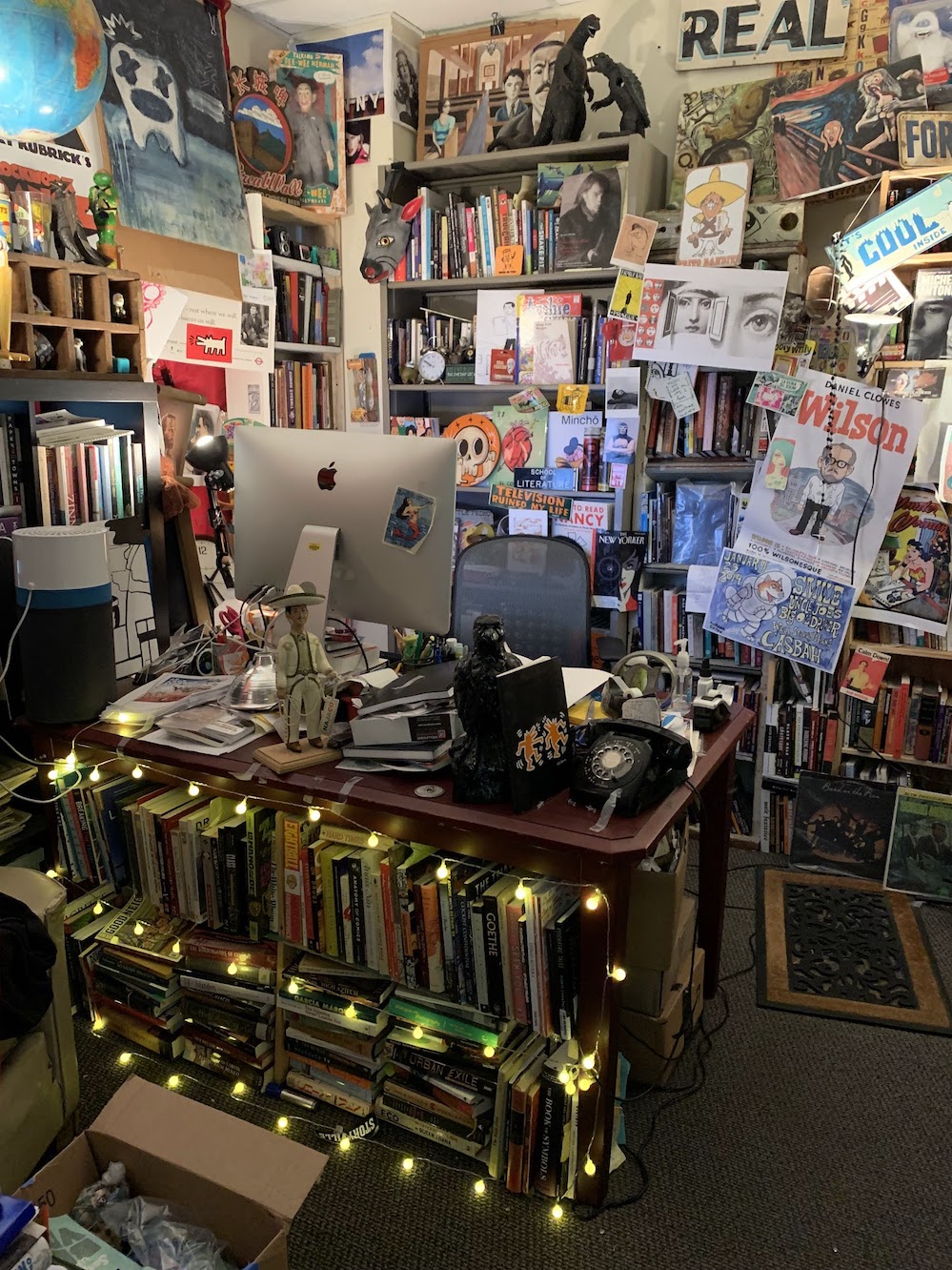 More Stuff
RULE: 1 BOOKS_BOOKS_BOOKS BUY THE BOOKS AND READ
THEM--DON'T COME TO SEMINAR WITHOUT YOUR BOOK! Though we very much
adore living in the 21st century, we will, for
the most part use ANALOG, printed books in
this class. So
check out each one and buy them now! RULE 2: READ_READ_READ!
RULE 3: PUT THE MONSTERS TO SLEEP!
Your laptop
will be asleep IN YOUR BAGS during class--or,
better yet, resting in your dorm room or
apartment. Have you
noticed how anytime a student uses a laptop in
an auditorium there is a "cone of distraction" alongside and
behind the student using a computer? This is usually due to said student surfing the web via wi-fi perusing erotic delights or god knows what. I was recently at a cool (ok, it was slightly boring, I confess) lecture by a noted writer--as I tried to listen to her, in front of me, a diverted student (attending the lecture, no doubt, for extra-credit) was perusing sites like these (nsfw or school). So, laptops are GREAT for entering your notes AFTER class, but they will not be allowed in our lecture hall. If you have an issue with this, schedule a meeting with me during office hours to chat the first week of class. PASSPORT RULE 4 PARALYZETHE SMARTPHONE!
RULE 5 Charlie-Delta_Thief
In the university, plagiarism refers to the art and crime of presenting other people's work under your own signature, aka cutting and pasting copied crap from Wikipedia--definitely a BAD thing. While your professor is forbidden by CSU/SDSU code from tattooing the word LOSER on the foreheads of guilty students, he can promise that felonious students will be remanded to the state-authorized SDSU executioners. Read THIS as well--SDSU is SERIOUS about this shit, so don't take any chances! Rely on your own singular mind and imagination! |
||||||||||||||||||||||||||
| DAY TO DAY CALENDAR |
||||||||||||||||||||||||||
| Thursday, January 18, 2024 It is the first day of class and all is in question (but, luckily, not all is in shambles). All is in question as your Professors, Lecturers, and Librarians (along with the SDSU Teamsters union) will be going out on strike next week. Which means that our classes on Tuesday, January 23, 2024 and Thursday, January 25, 2024, will likely be cancelled. If you have any questions about what is at stake and why we are striking, please read this page carefully -- Do also consider joining us on the picket line as student/faculty solidarity will be key as we try to fight tuition hikes and low-ball raise offers to faculty. We will also talk about this epic moment in higher education labor history in class today. WHICH YES WILL BE HELD! Assignment --> For class today, please read the blogposting and GORDO comix archived here written by yours truly and focused on Mexican American comix pioneer Gus Arriola. |
||||||||||||||||||||||||||
| Tuesday, January
23, 2024 No class -- SDSU Faculty on Strike 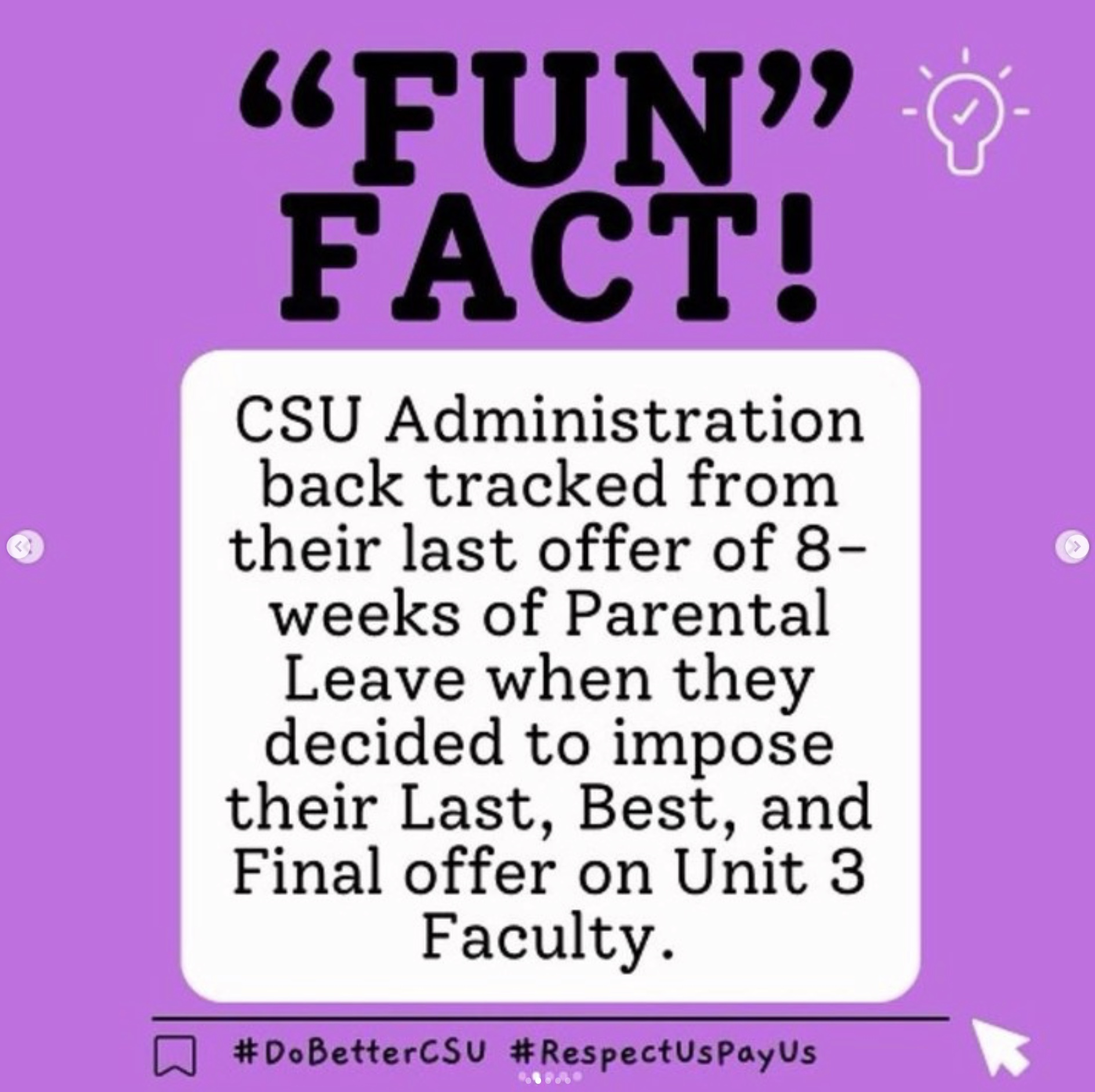 |
||||||||||||||||||||||||||
| Thursday,
January 25, 2024 No class -- SDSU Faculty on Strike 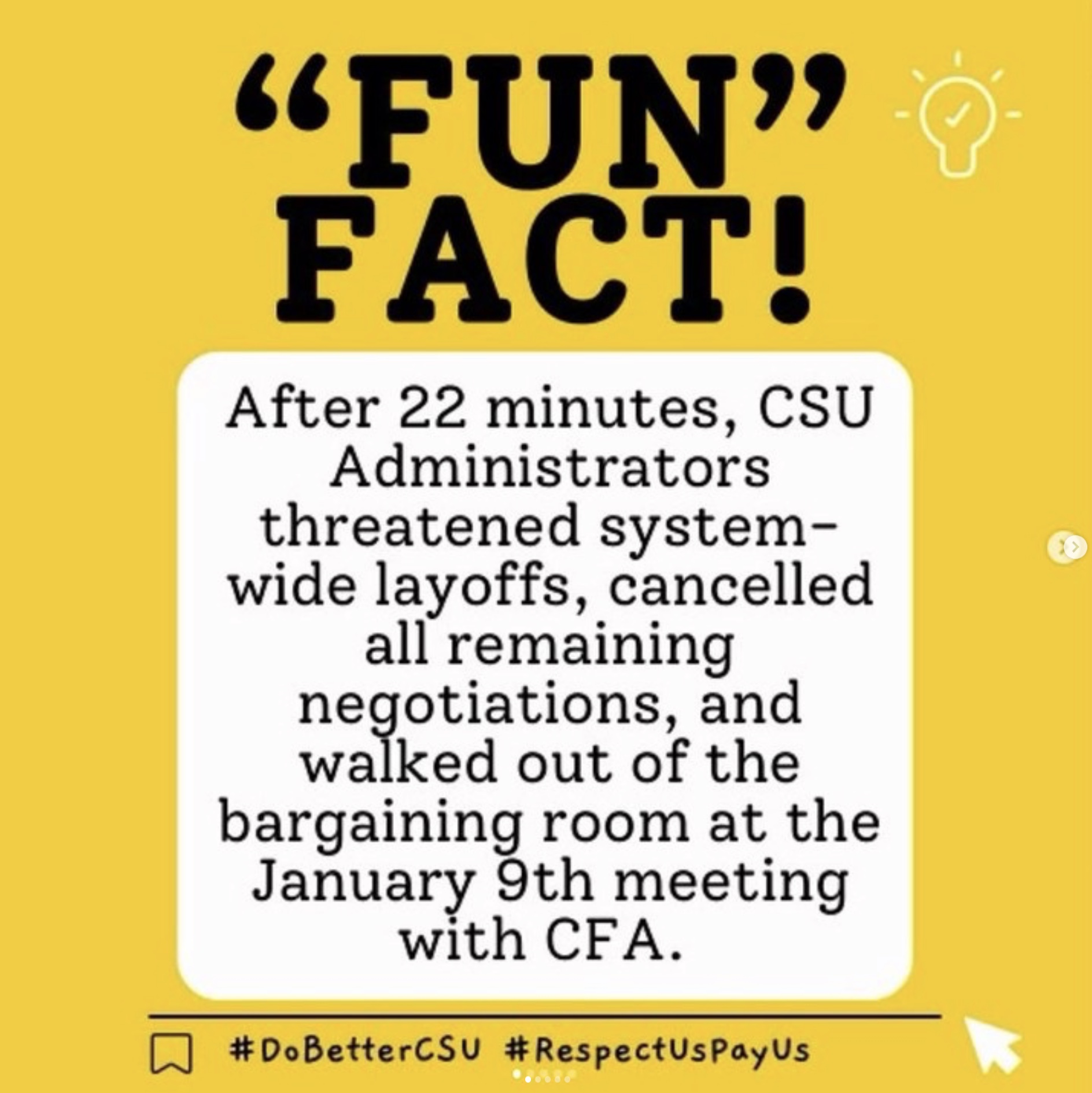 |
||||||||||||||||||||||||||
Tuesday, January
30, 2024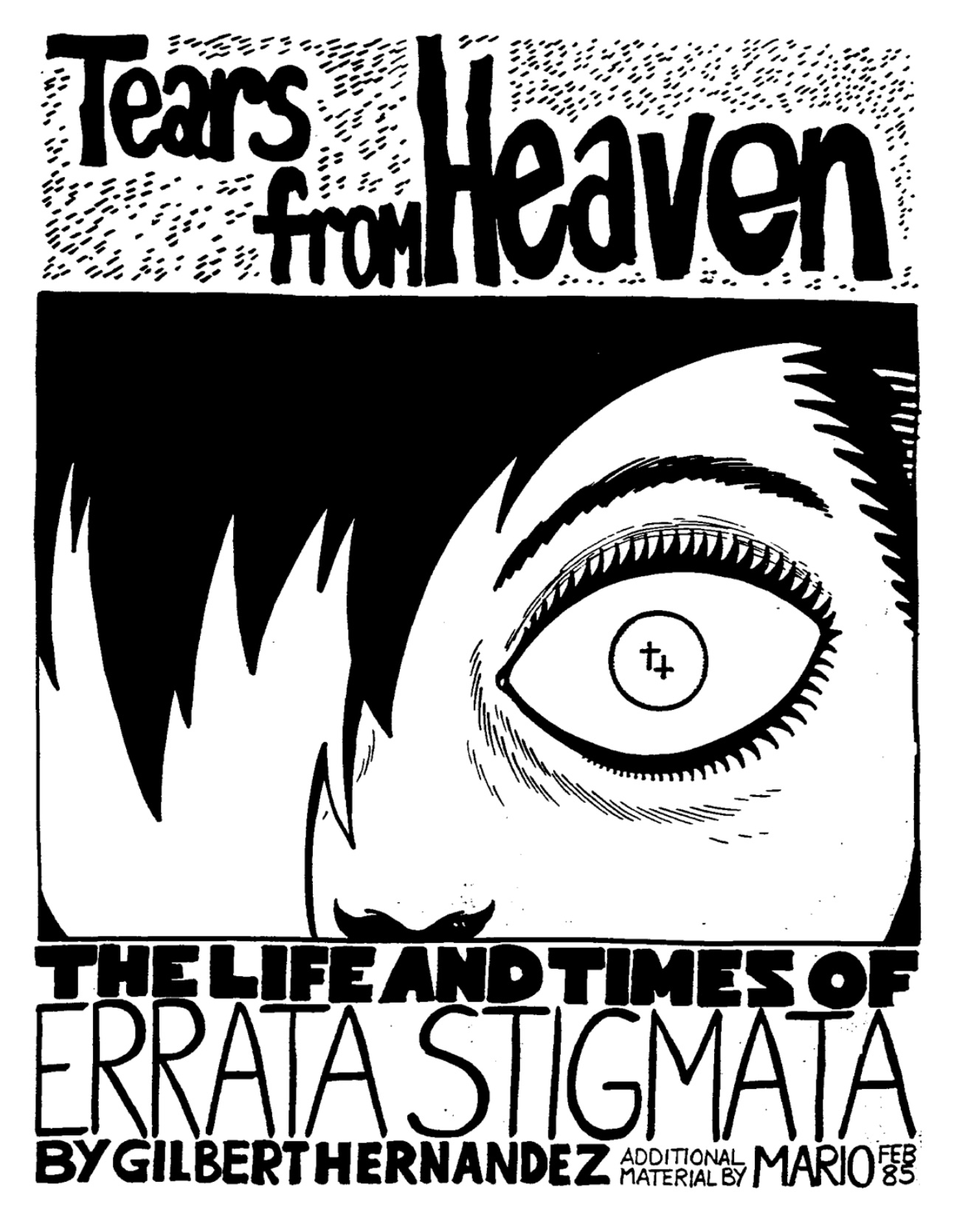 We are back in class in our own personal labyrinth, Hepner Hall 150, aka The Sensual Sanctuary. In class today we will be treated to a kind of historical whiplash as we leap to and fro from the work of Gus Arriola to that of Gilbert Hernandez, two remarkable Mexican American Californians (Arriola by way of Arizona) whose indelible contributions to Chicanx Comix need to be recognized. *Read this selection from Robert C. Harvey's book on Arriola, The Accidental Ambassador, along with as many of these Arriola comic strips as you care to peruse. For Gilbert's work read this brief piece on micro-epic "Errata Stigmata" as well as his two-part novella, "An American in Palomar." If you are new to the world of comics try to give yourself time to read each story twice -- the first time through read word and image getting the feel and vibe of each tale or story. The second time through, only "read" the pictures. With comics, sometimes word and image collude; and sometimes, they clash. *You must be logged into your SDSU gmail account in order to see/download this particular excerpt.  |
||||||||||||||||||||||||||
| Thursday, February 1, 2024 It's early in the semester, but it's time to immerse ourselves in the mix of Chicanx, Latinx, and more in Frederick Luis Aldama's Latinx Comic Book Storytelling. Aldama's rolodex is filled with the crème de la crème of cartoonists and writers remaking the world of graphic narrative and sequential art. Read to page 51 in Aldama's almanac -- if you have time, page here and there through the rest of the volume to try and identify a current artist whose work you want to look up and learn more about!  |
||||||||||||||||||||||||||
| |
||||||||||||||||||||||||||
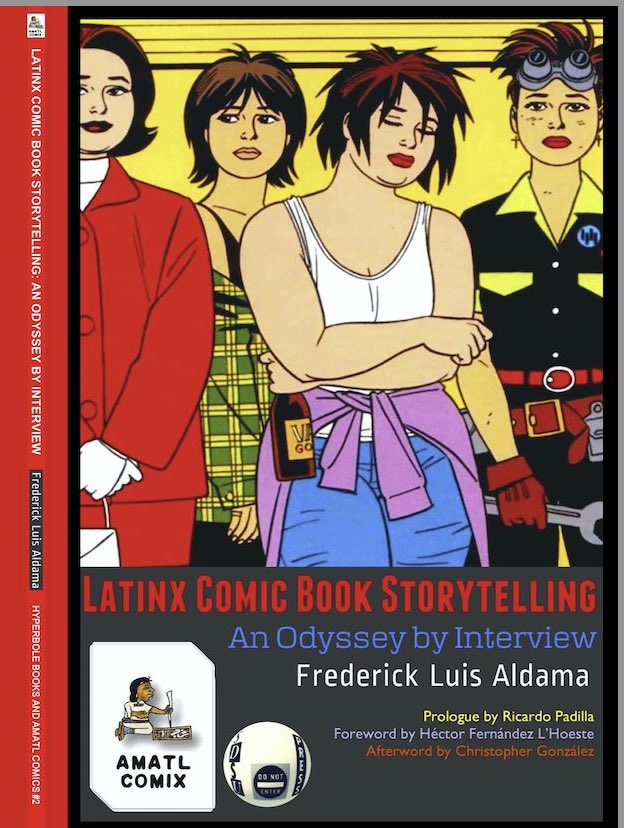 Tuesday, February 6, 2024 Finish reading Aldama's catalogue of Latinx wonders -- any 15 entries. Pick ONE artist that really catches your eye and find a work online by them. Bring to class a printed panel from that artist's work and be prepared to write and share something about them! |
||||||||||||||||||||||||||
Thursday, February 8, 2024 Read the first half of Stavans and Alcaraz's LATINO U.S.A.! Surprise! Lalo will be hanging with us in class and after with a presentation and lecture! Let the Desmadres ensue!  |
||||||||||||||||||||||||||
| Tuesday, February 13, 2024 Finish Reading LATINO U.S.A. 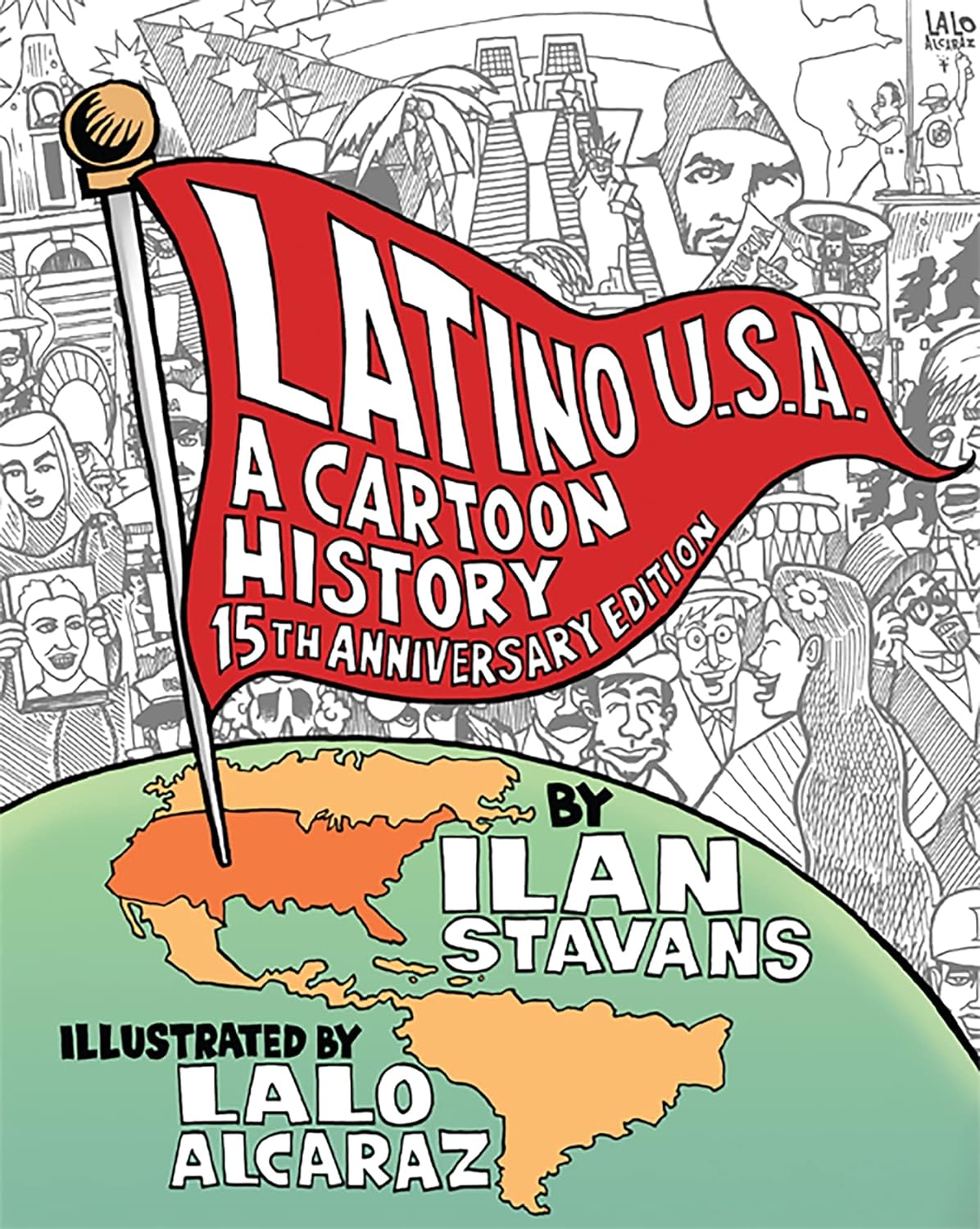 |
||||||||||||||||||||||||||
| Thursday, February 15, 2024 Read the first third of Myriam Gurba's Creep! 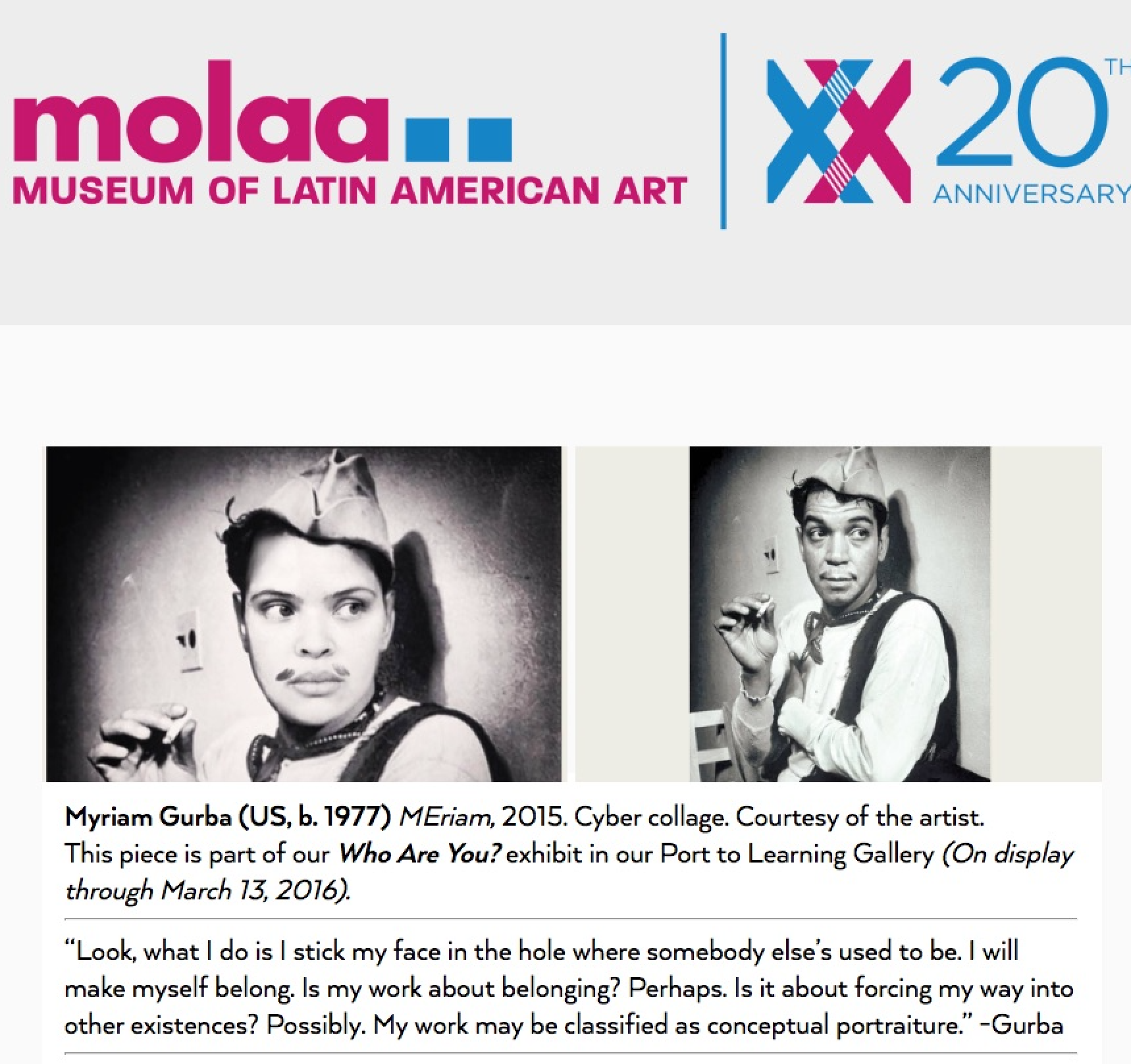 |
||||||||||||||||||||||||||
Tuesday, February
20, 2024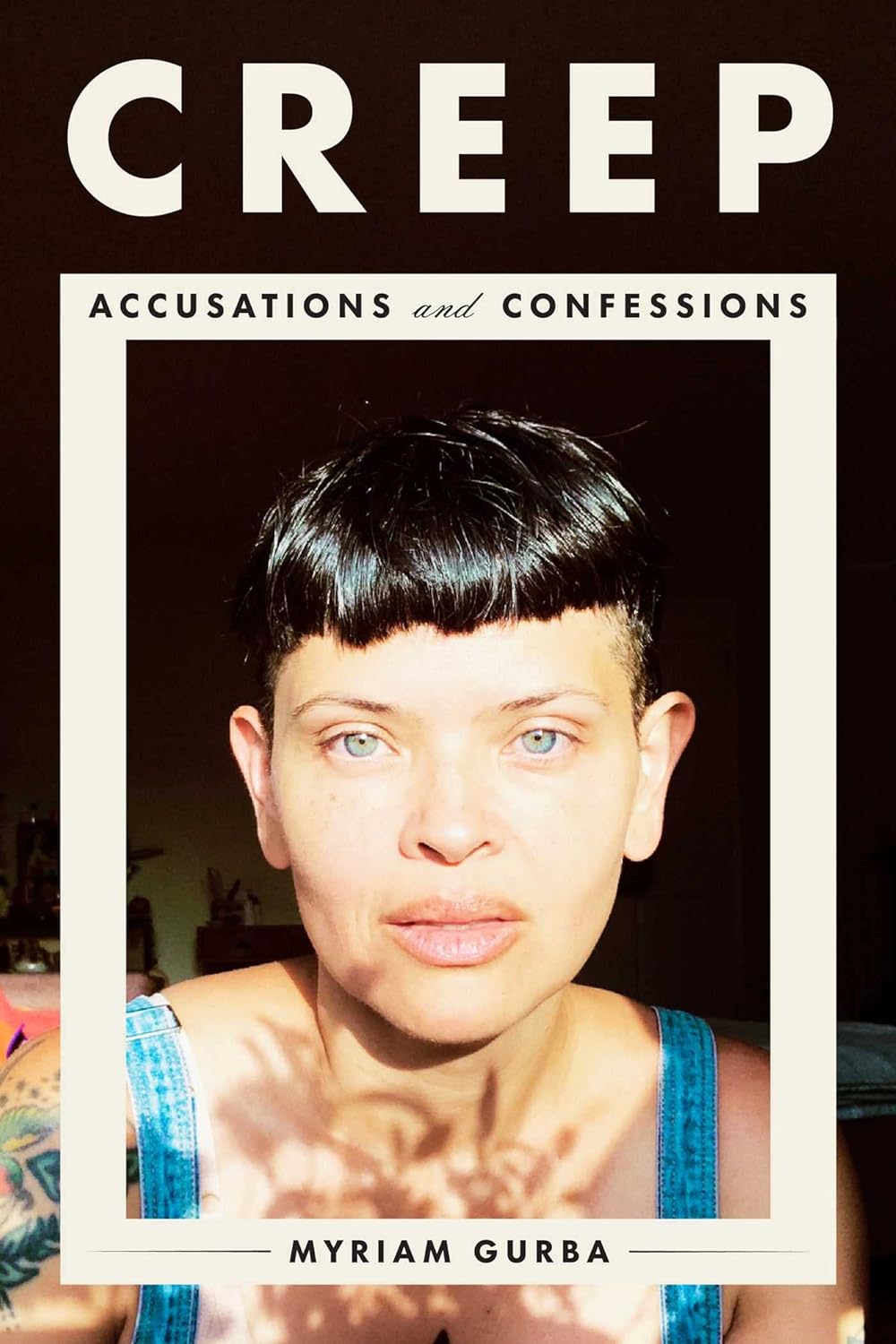 Over the weekend, finish reading Myriam Gurba's Creep!
In class last Thursday we considered and enumerated
various genres of writing, motifs, themes, and more in
the first 100 pages or so of Gurba's collection of
essays. For class today, come to class ready to talk
about a particular essay your focused on and what you
would write about it if asked to compose an essay. If
you can, come to class with a printout with the working
title of that essay to share with me and the class.
Over the weekend, finish reading Myriam Gurba's Creep!
In class last Thursday we considered and enumerated
various genres of writing, motifs, themes, and more in
the first 100 pages or so of Gurba's collection of
essays. For class today, come to class ready to talk
about a particular essay your focused on and what you
would write about it if asked to compose an essay. If
you can, come to class with a printout with the working
title of that essay to share with me and the class. |
||||||||||||||||||||||||||
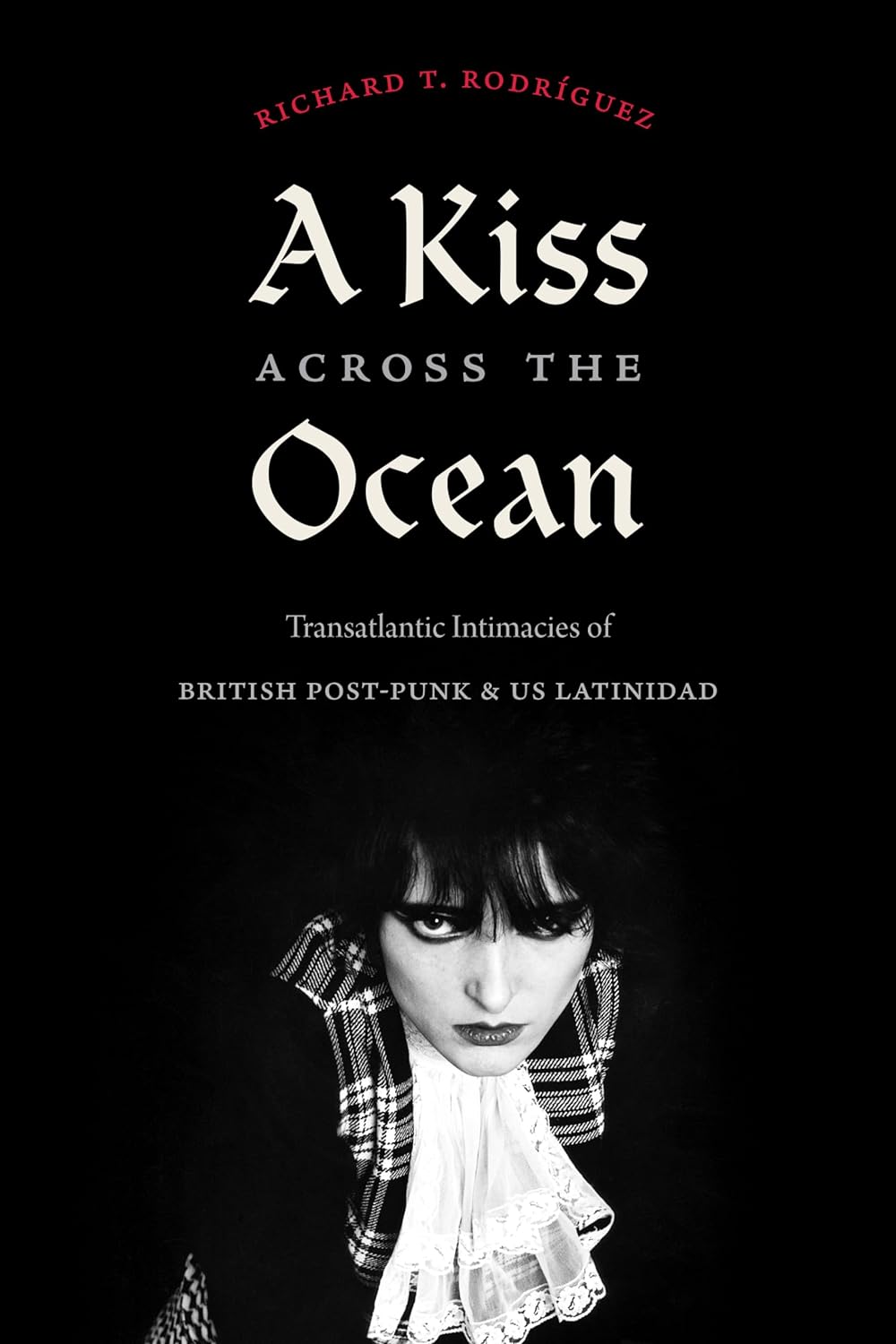 Thursday,
February 22, 2024 Thursday,
February 22, 2024Professor Ricky Rodriguez from UCR's English Department is in the House as we open our readings of his recent music studies/cultural studies classic A Kiss Across the Ocean: Transatlantic Intimacies of British Post-Punk and US Latinidad. Find out more about his epic cool Chicanx work here. Come to class today having read to page 84 in 'Kiss -- to the end of Chapter 3. Professor Rodriguez's talk will be entitled "Crossing the Transatlantic Border: From Chicanx Studies to Cultural Studies and Back Again." Richard T. Rodríguez is Professor of English at the University of California, Riverside. He is the author of Next of Kin: The Family in Chicano/a Cultural Politics (Duke University Press, 2009), which won the 2011 National Association for Chicana and Chicano Studies Book Award, and most recently, A Kiss across the Ocean: Transatlantic Intimacies of British Post-Punk and US Latinidad (Duke University Press, 2022), which was named by Rolling Stone as one of The Best Music Books of 2022. He is currently finishing a book of poems titled Exemplars and Accomplices and a book on Latino sexuality and labor titled The Desirable Conduit.  |
||||||||||||||||||||||||||
Tuesday, February
27, 2024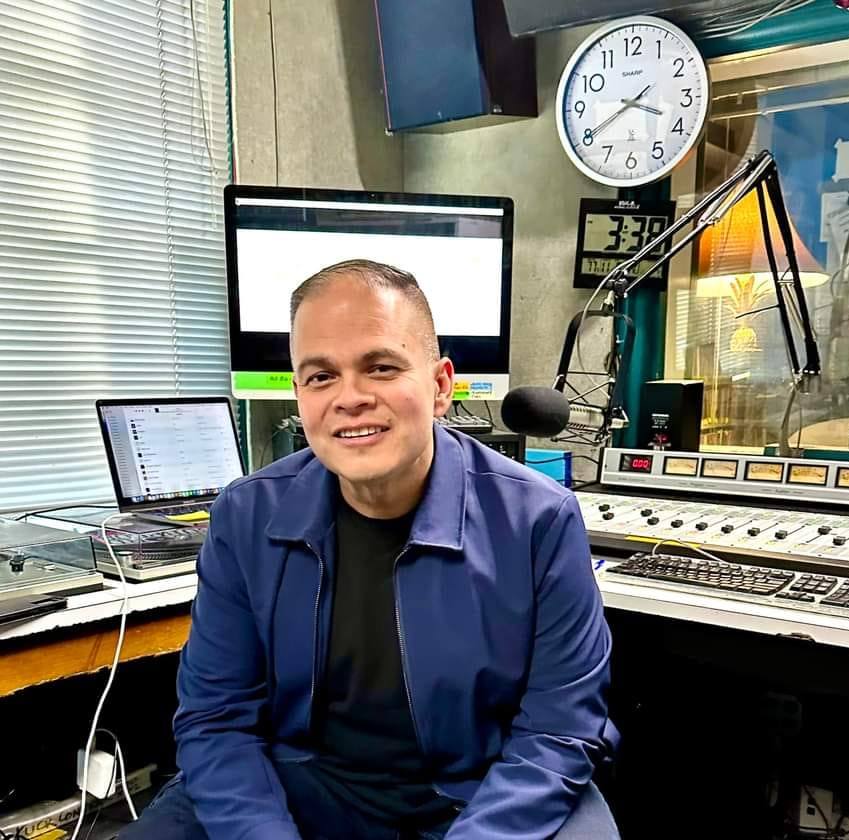 We continue our readings from A Kiss Across the Ocean. Enter our seminar room having completed Profe Rodriguez's ode to cultural studies, televisual influence, and the Chicanx dasein. As you read, come to class ready to share about a book you might write about your own musical influences -- what are the songs/bands you adore that actually creep across boundaries and impact the way you think and write. 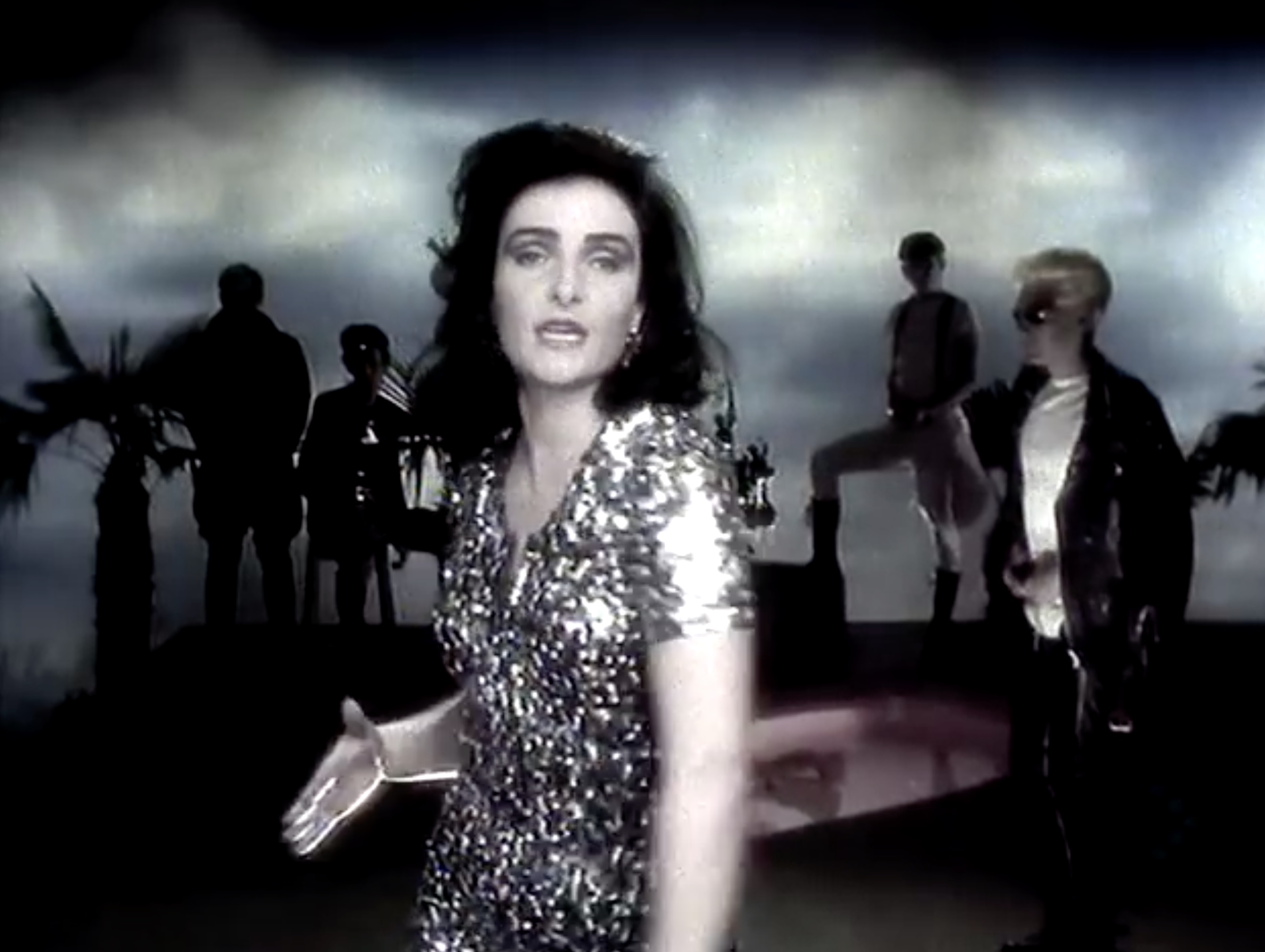 |
||||||||||||||||||||||||||
Thursday, February 29, 2024 From music videos, music, performance and the Chicano cultural critic's psyche, we move to Norma Cantu's CANICULA -- here we are faced with a Chicana woman's psyche processed through a kaleidoscope of memory, photography, memoir and more. Read the first 90 pages or so from Cantú's singular narrative. 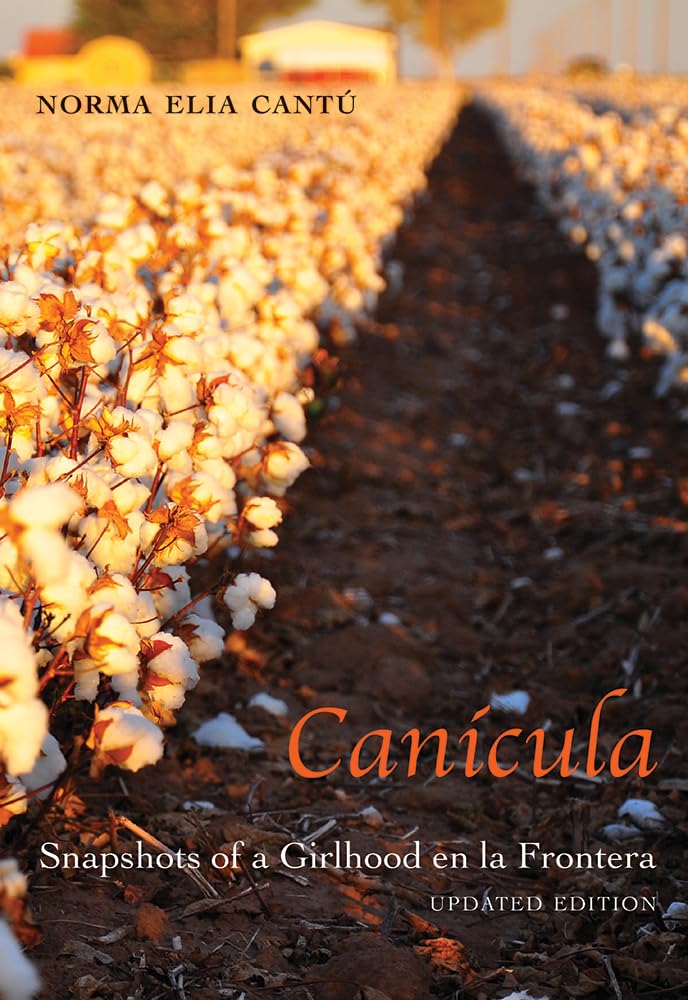
|
||||||||||||||||||||||||||
| Tuesday, March 5,
2024 Epic amazingness as Katherine Steelman, a UCSD Doctoral Student and lecturer in Chicana/o/x Studies here at SDSU invades our classroom with an amazing presentation: Colonization, Zombies, and Chicanx
Comics
Required Readings for the lecture: Reading ONE Reading TWO 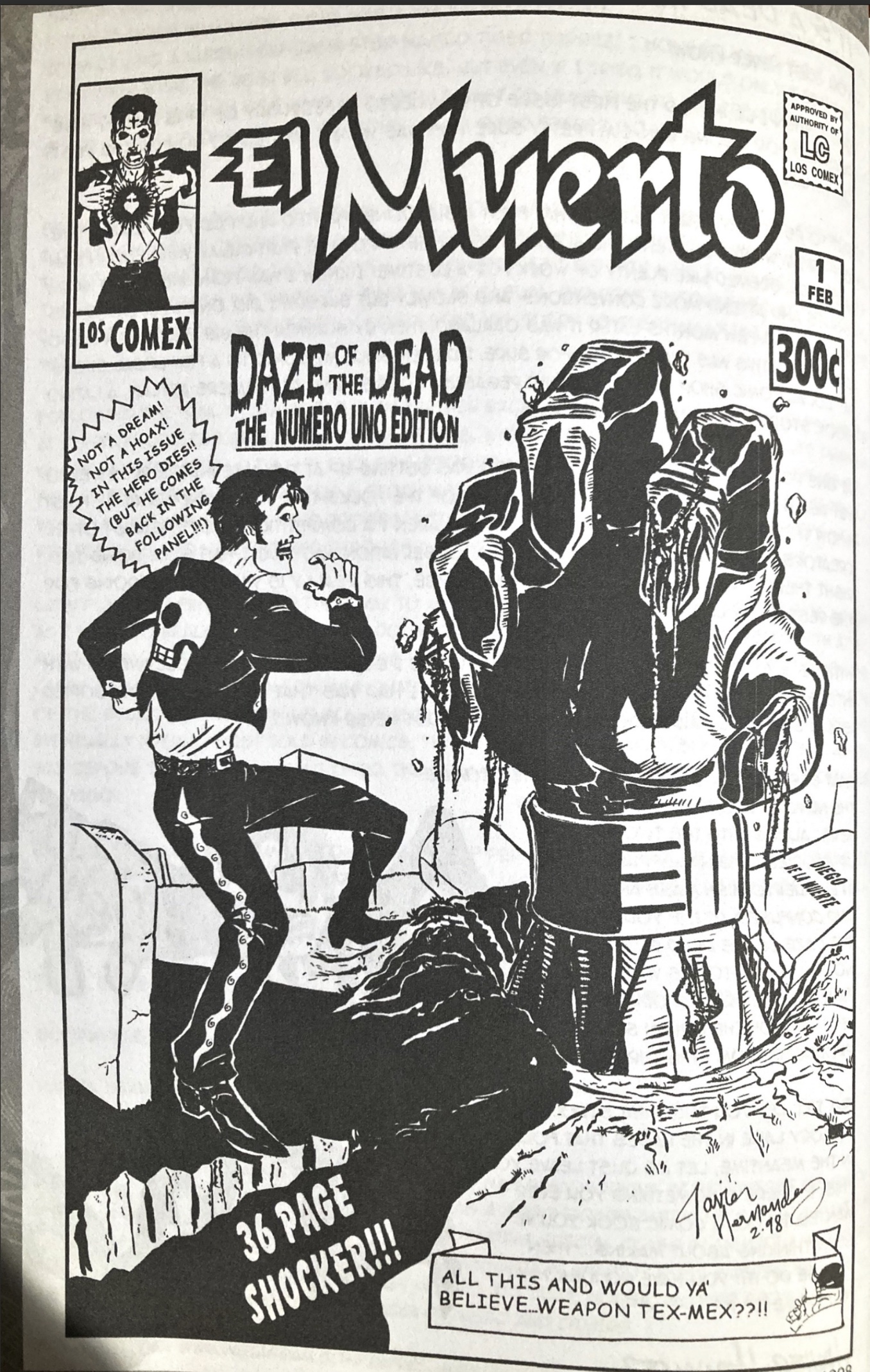
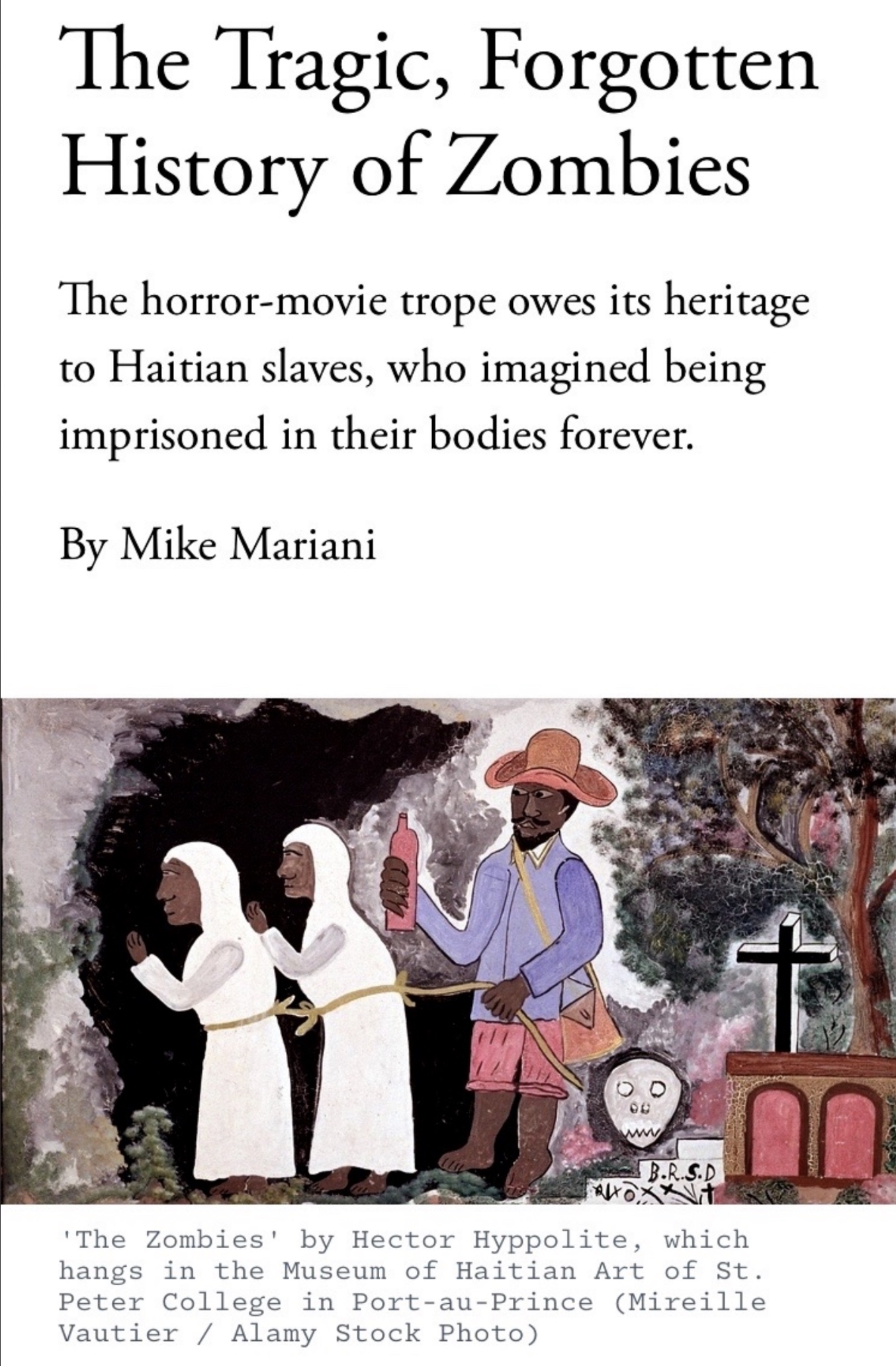
The
first cannibalistic zombie to terrorize U.S. horror
fans came from the mind of Cuban-American director
George A. Romero who dislocated the zombie myth from
its origins as a Haitian Vodou myth and allegory for
slavery. Since Romero’s Night of the Living Dead was
released in 1968, the contagious, flesh-eating
zombie has been written about as an allegory for
contemporary social anxieties including consumerism,
migration and climate change. Some argue that by
dislocating the zombie from its origins in Haiti,
Romero removed the figure from its connection to
Blackness and to chattel slavery. Javier Hernandez’s
series El Muerto: The Aztec Zombie, reveals that the
cannibalistic zombie, in a Chicanx context, is
operating through a similar framework to the Haitian
zombie myth as an allegory for the dehumanization of
indigenous Latin Americans under settler
colonialism. Like recent Haitian contributions to
the zombie genre, Hernandez’s zombie is not a
mindless, monstrous drone, but a complex and
misunderstood hero. Howard Zinn argues that the
dominant historical narrative of the colonization of
the Americas maintains that the destruction of
indigenous cultures and peoples in the region was a
necessary sacrifice in the name of human progress.
This takes on a meaning beyond that which Zinn
intended when considered alongside the history of
racial formation of the Aztecs, who were cast
outside the category of human for practicing human
sacrifice and ceremonial cannibalism. It is
important to note here that the indigenous people of
Haiti, the Taino, were also accused of cannibalism
as part of a settler-colonial racial project. In
Hernandez’s comic, Diego de la Muerte, a Chicano
from Whitter, is sacrificed by the Gods and returns,
not as a subhuman villain, but as a superhuman hero.
Drawing on scholarship about the formation of race
in the colonial Americas, as well as recent work on
race and horror, we will discuss the relationship
between the use of the Haitian zombie myth as
a horror trope, Haitian zombie stories that cast
zombies as heroes, and Hernandez’s comic which
employs the zombie myth to comment on the
racialization of indigenous Mexican spirituality.
Bio: Dr. Katherine Steelman is a lecturer in Chicana/Chicano Studies and Women's and Gender Studies at SDSU She earned a B.A in English at University of California, Riverside, and an M.A. English at Cal State Long Beach, and a PhD in Ethnic Studies at UCSD. Broadly, her work examines how sexually non-normative spaces are socially and materially constructed in Tijuana, BC, MX. She takes up US cultural production, as well as the Tijuanense response to the US's narrative of the city and its cuir communities. This work juxtaposes critical analyses of cultural texts with ethnographic interviews. Currently, she is working on a project that engages cultural representations of Haiti in the US and Mexico, as well as collaborative ethnographic work with Haitian migrants in Tijuana. 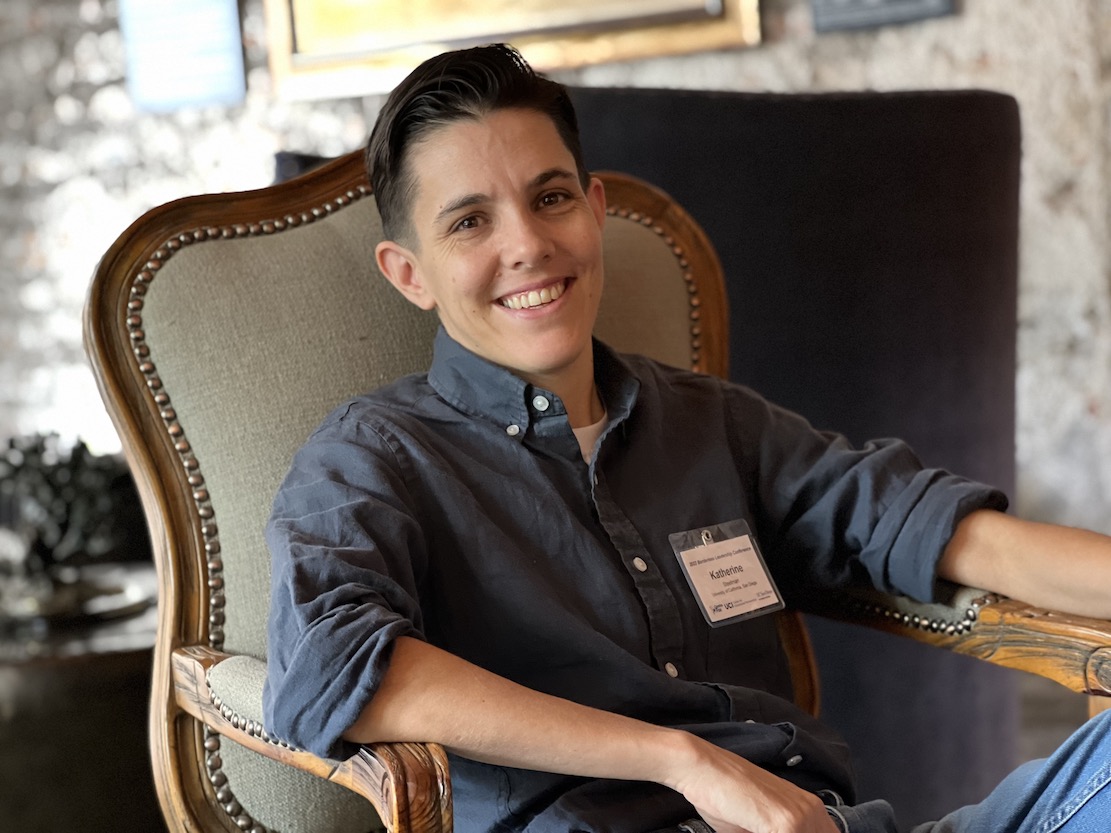 |
||||||||||||||||||||||||||
| Thursday,
March 7, 2024 Stop the presses! We are rapt with attention as guest lecturer Nishi Khodaria (Grad Program, ECL) is in the house for a great lecture on Gloría Anzaldúa ... 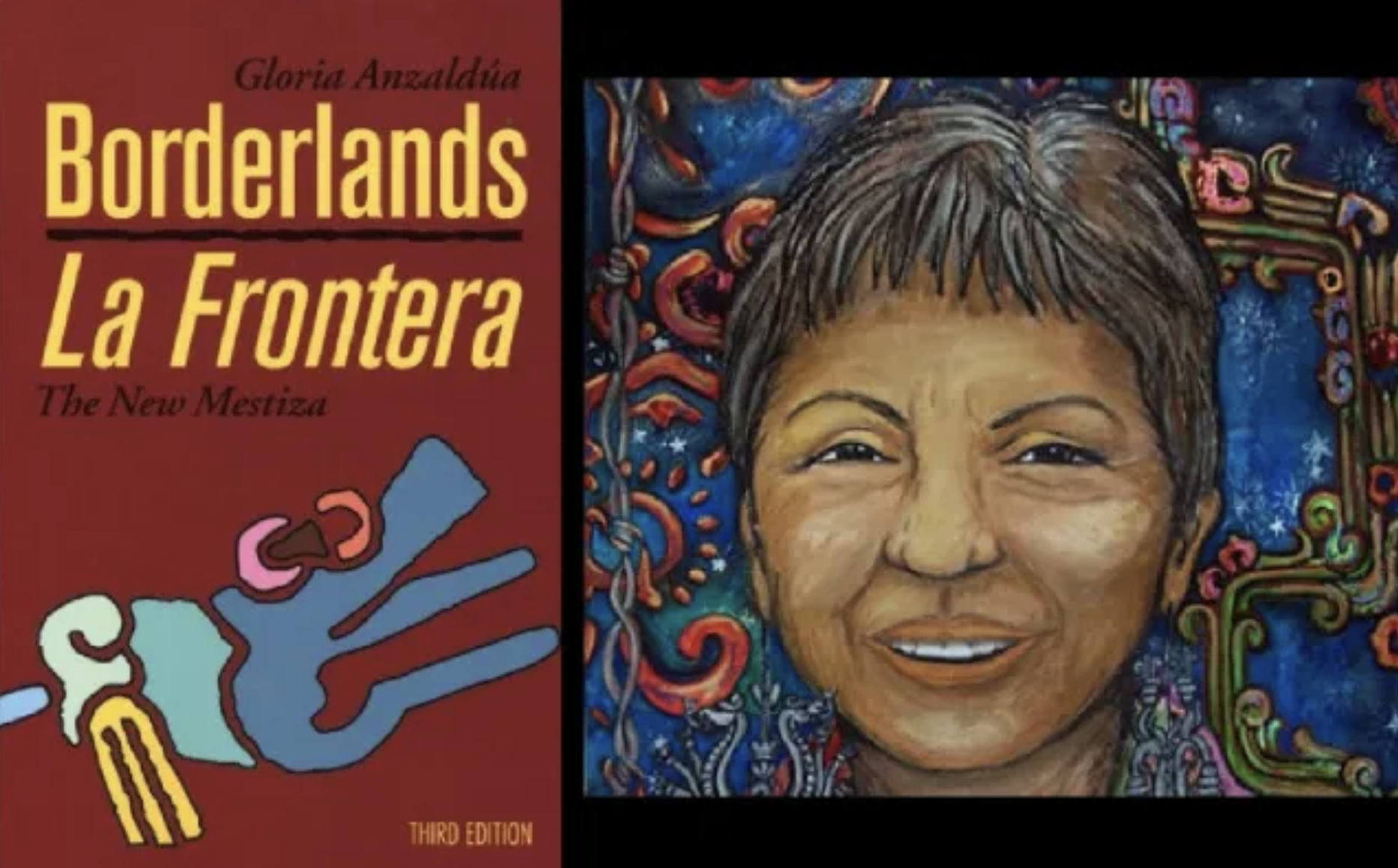 Writing as a Border Woman: Pursuing the Path of the Red and Black Ink NISHI KHODARIA Taking a chapter from one of the pioneering works in postcolonial, feminist studies, Gloria Anzaldúa’s Borderlands/La Frontera, published in 1987, continues to hold relevance to present times, especially in line with foregrounding the violence of growing up in a borderland, of living in a state of psychic unrest. Most poignantly, as we seek to pursue the path of the red and black ink, centralizing what it means to write as a border woman? 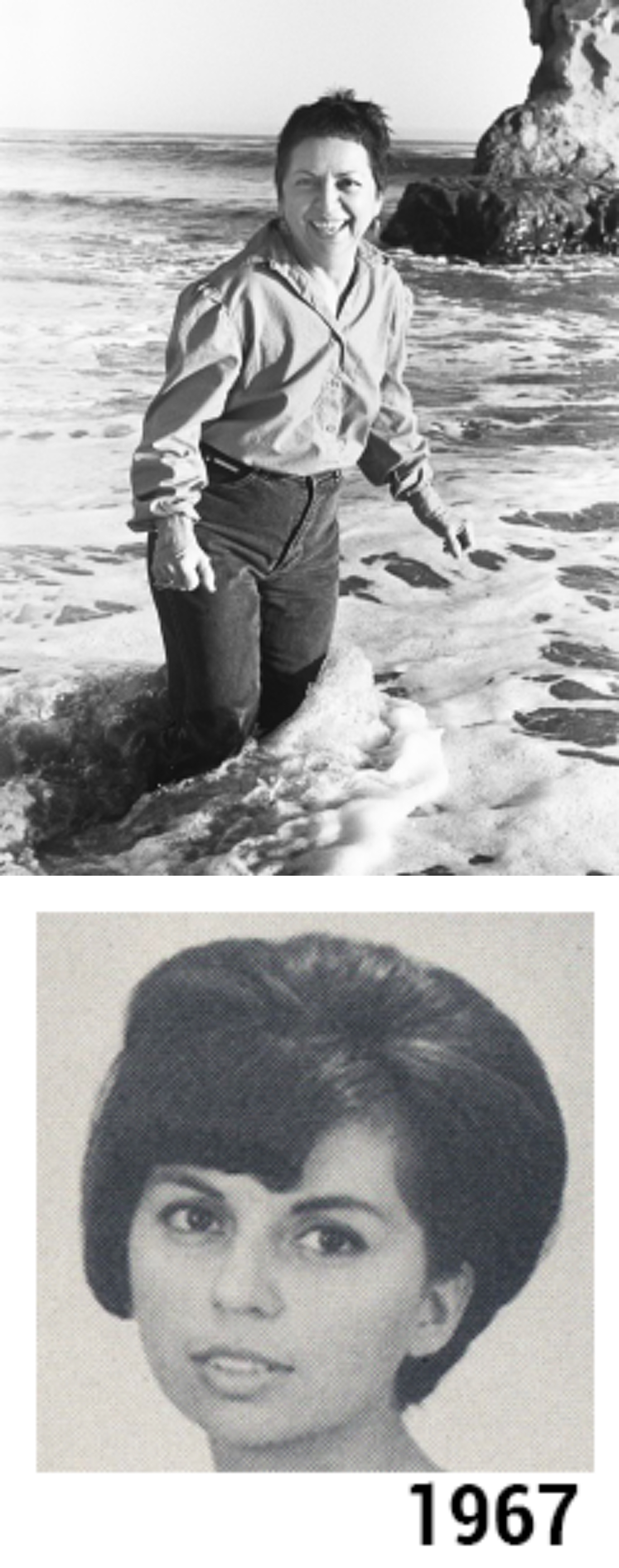 As a
mestiza? Of living in a space of contradictions, a
conflict, a pervasive shift in the identity generated
by the border divide, it is an exploration akin to
carving bone, one’s face, heart, a constant remaking
in writing, of learning to live with the borderland,
the writer thus ceases to be a singular persona,
manifesting into a shape-changer, a nahual. Such is
the path we descend on for Thursday’s class, as we
pursue Anzaldúa’s “The Path of Red and Black Ink,” set
amidst the backdrop of Borderlands, touted as her
semi-autobiographical work, the present chapter
examines the aspect of cultural ambiguity within the
queer, Chicana experience, from a postcolonial
feminist lens, as we seek to further examine the
figure of the mestiza within the borderland, stepping
into the path of the mestiza consciousness, a path
moving from violence to healing, as argued by
Anzaldúa, one that seeks to heal the split between
predominantly Western, White, straitjacketed, binary
identities of white and colored, male and female and a
hegemonically differentiated “us” and “them.” Come
having prepared to challenge straightjacketed
definitions of identity, as we sit in ambiguity,
performing Anzaldúa’s the path of red and black ink,
venir, join the ritual.
As a
mestiza? Of living in a space of contradictions, a
conflict, a pervasive shift in the identity generated
by the border divide, it is an exploration akin to
carving bone, one’s face, heart, a constant remaking
in writing, of learning to live with the borderland,
the writer thus ceases to be a singular persona,
manifesting into a shape-changer, a nahual. Such is
the path we descend on for Thursday’s class, as we
pursue Anzaldúa’s “The Path of Red and Black Ink,” set
amidst the backdrop of Borderlands, touted as her
semi-autobiographical work, the present chapter
examines the aspect of cultural ambiguity within the
queer, Chicana experience, from a postcolonial
feminist lens, as we seek to further examine the
figure of the mestiza within the borderland, stepping
into the path of the mestiza consciousness, a path
moving from violence to healing, as argued by
Anzaldúa, one that seeks to heal the split between
predominantly Western, White, straitjacketed, binary
identities of white and colored, male and female and a
hegemonically differentiated “us” and “them.” Come
having prepared to challenge straightjacketed
definitions of identity, as we sit in ambiguity,
performing Anzaldúa’s the path of red and black ink,
venir, join the ritual.Required reading here!  Bio: Nishi
Khodaria is an intersectional, Feminist
scholar working at the intersections of
gender, race and postcolonial women’s
writings. Her research focuses on South Asian
women’s literature, centering a transnational
feminist study of the partition literature, or
simply put, what it means to live in a
constant state of back and forth, on the
border. Khodaria is presently completing her
graduate degree in the Department of English
and Comparative Literature, SDSU. Bio: Nishi
Khodaria is an intersectional, Feminist
scholar working at the intersections of
gender, race and postcolonial women’s
writings. Her research focuses on South Asian
women’s literature, centering a transnational
feminist study of the partition literature, or
simply put, what it means to live in a
constant state of back and forth, on the
border. Khodaria is presently completing her
graduate degree in the Department of English
and Comparative Literature, SDSU. |
||||||||||||||||||||||||||
Tuesday, March 12,
2024
Walk into our labyrinth, Hepner Hall 150, having finished your reading of Norma Cantú's CANÍCULA. Bring a passage -- no more than 5 or 6 sentences -- that you are ready to apply your hermeneutic superpowers on in an in-class writing challenge to open the class. |
||||||||||||||||||||||||||
 Thursday, March 14, 2024 It's Televisual Thursday as we screen the epic and wildly acclaimed first episode of WEDNESDAY, starring Jenna Ortega: Wednesday Season 1, Episode 1, "Wednesday's Child Is Full Of Woe" 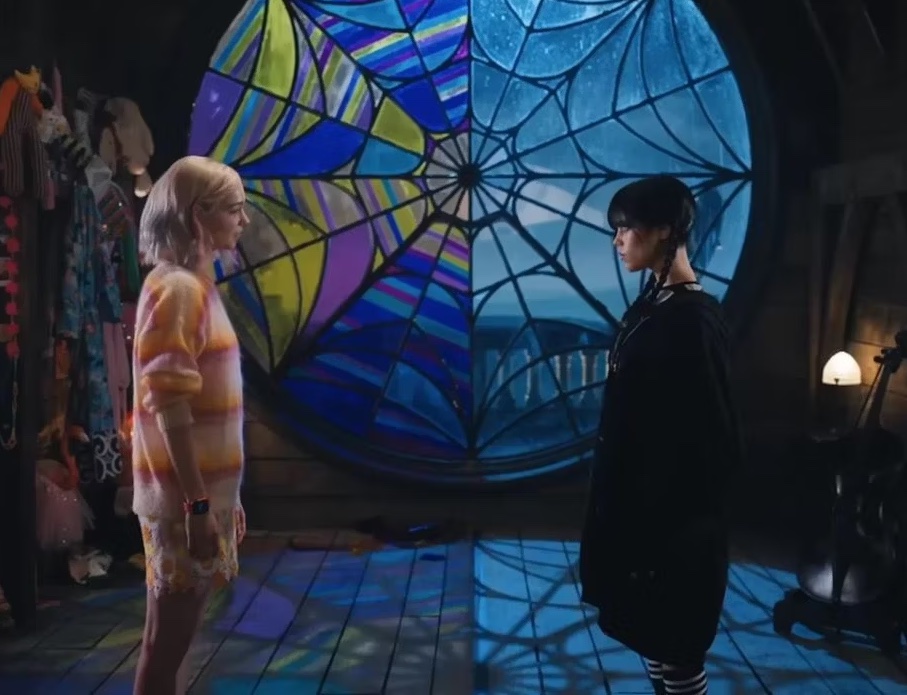 The facts: Writers Charles Addams, Alfred Gough, & Miles Millar; Stars Jenna Ortega, Gwendoline Christie, & Riki Lindhome; Episode aired Nov 23, 2022; TV-14; 57 minutes. Please get to class on time -- the sooner we start it the more time we will have for discussion. After class, we will have an informal meeting discussion/gathering on the Eureka patio. First refreshment of the afternoon on MALAS! |
||||||||||||||||||||||||||
Tuesday, March 19,
2024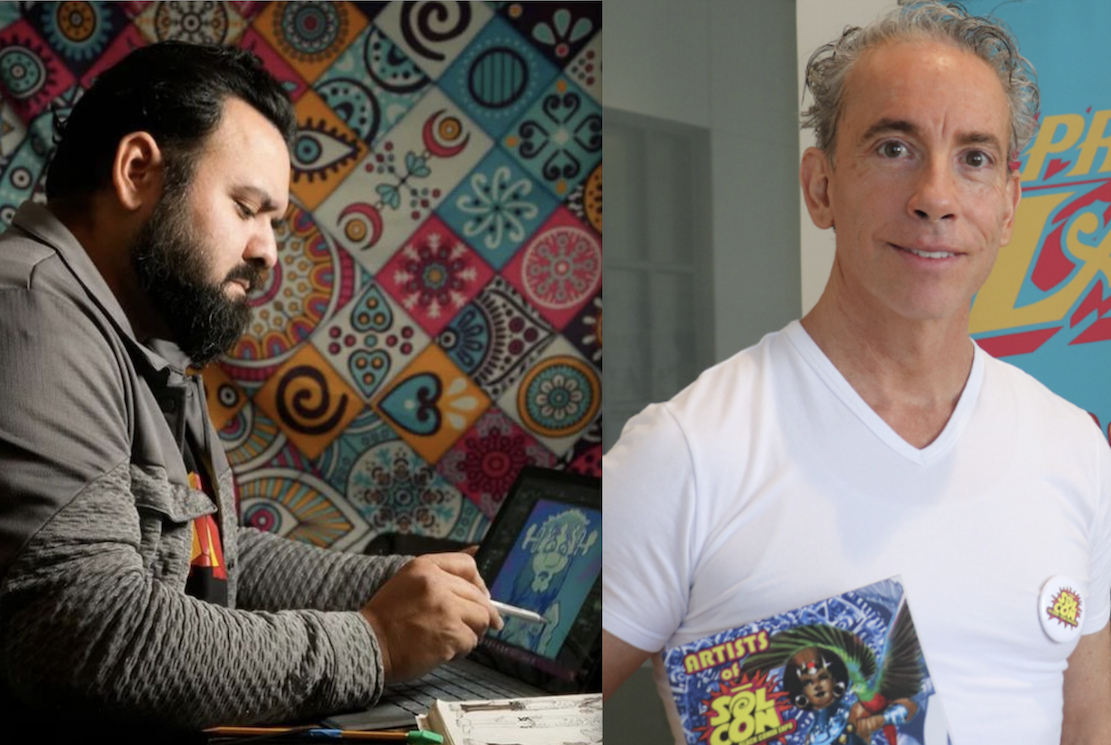 Today you enter our sensual labyrinth of intellectual adventures, Hepner Hall 150, the "house that smells of mota" having devoured the paired comic book geniuses of Frederick Aldama & Oscar Garza and their recent work THROUGH FENCES! Come to class having a specific story you want to introduce to your fellow seminarians -- in your brief presentation, you will NOT summarize the story; rather, you will speak of elements you encountered in the narrative you believe merit deeper inquiry.  |
||||||||||||||||||||||||||
| Thursday, March 21, 2024 Frederick Luis Aldama is IN THE HOUSE for a lecture on Latinx comix, critical approaches to comix studies y mucho mas more! click to enlarge |
||||||||||||||||||||||||||
Tuesday, March 26,
2024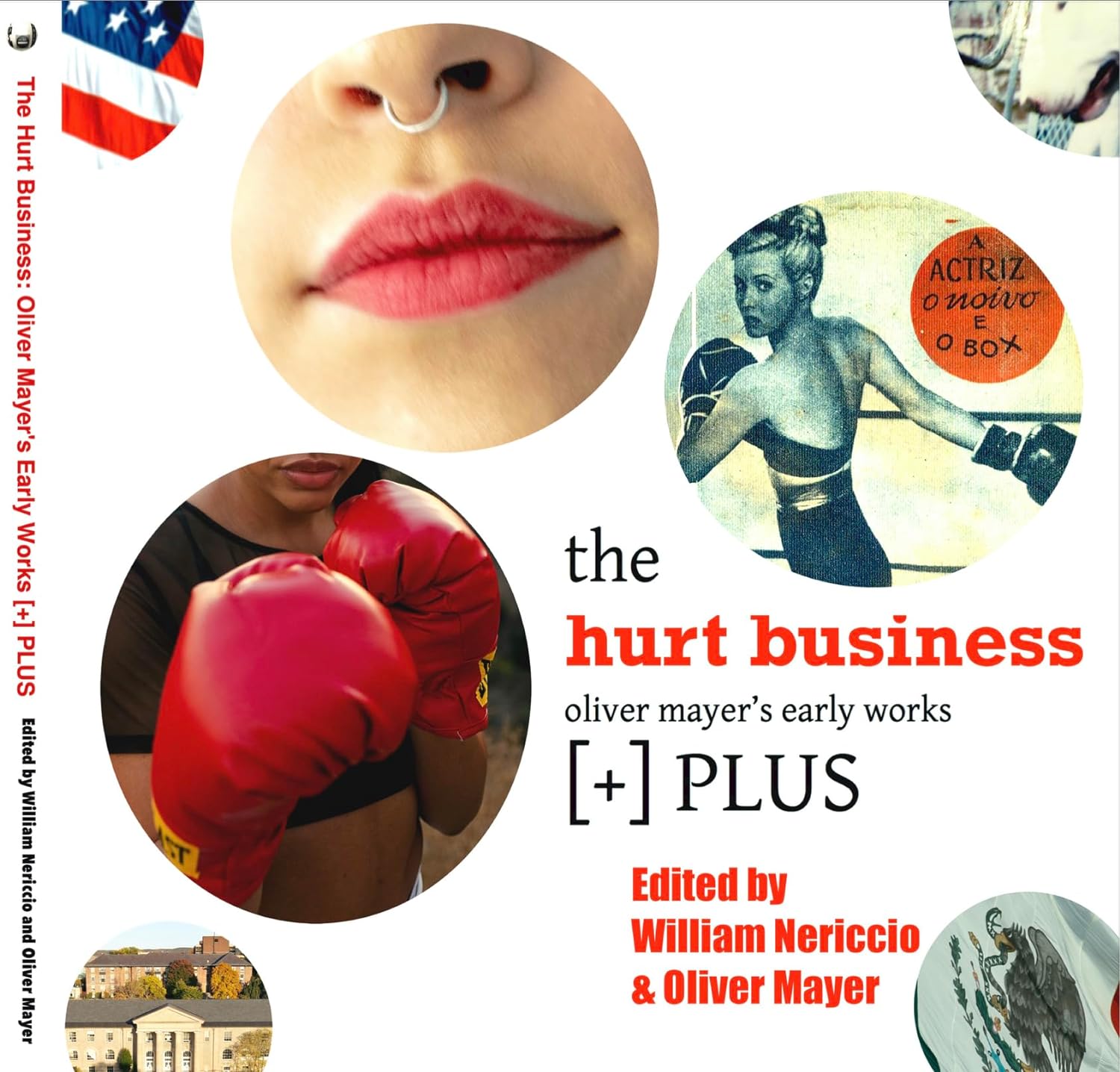 We enter the room ready for a break from visual culture -- now we sojourn to Chicanx teatro and the great works of USC Professor Oliver Mayer. Enter our labyrinth of a classroom having read YOUNG VALIANT, Mayer's bildungsroman reverie to simpler days, easier times.  But of course, in teatro, in theatre, what appears simple on the surface masks a subterranean universe of intrigue and more. Don't be surprised in Sigmund Freud makes a cameo! Also read as much of the support materials in the book as you can get to -- the pictures, especially, in this illustrated special collection from SDSU Press, should augment your reading. |
||||||||||||||||||||||||||
| Thursday, March 28, 2024 In class MidTerm  |
||||||||||||||||||||||||||
| Tuesday, April 2,
2024 Spring Break |
||||||||||||||||||||||||||
| Thursday, April 4, 2024 Spring Break |
||||||||||||||||||||||||||
| Tuesday, April 9, 2024 Read WUNDERSTEIN Part 1 and Part 2 before class. 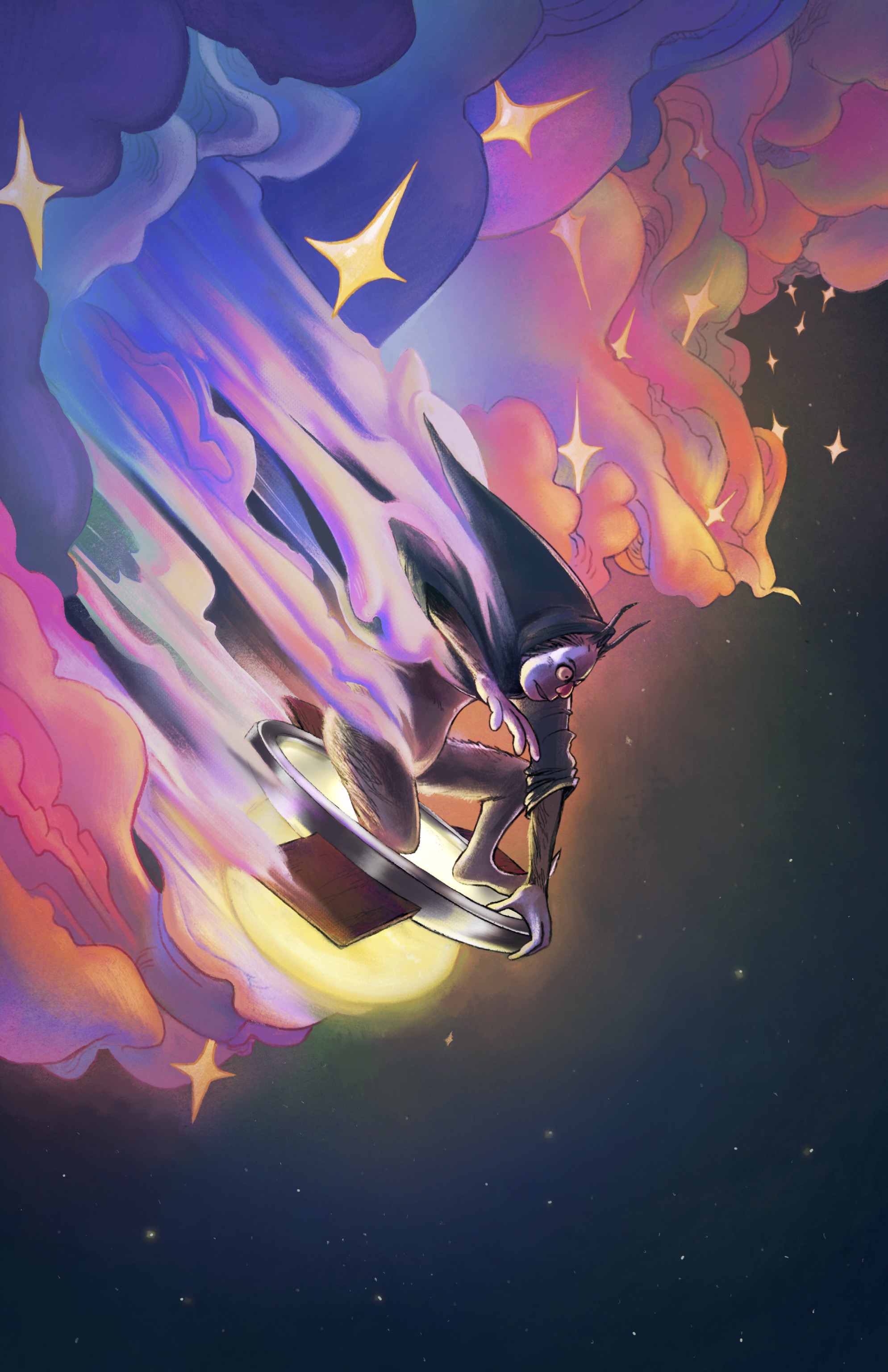 The class will open with a 25-minute talk/discussion by Dr. Carlos Kelly on borders, co-creation, and rewriting narratives -- from there the class will evolve into an artists's workshop of sorts as Dr. Kelly introduces his "homies" Adrian Carillo (Artist) and Chris Bengtsson (Writer). Carlos will moderate a Q&A with them, and then students can join the Q&A, and we'll just have a larger discussion after that. 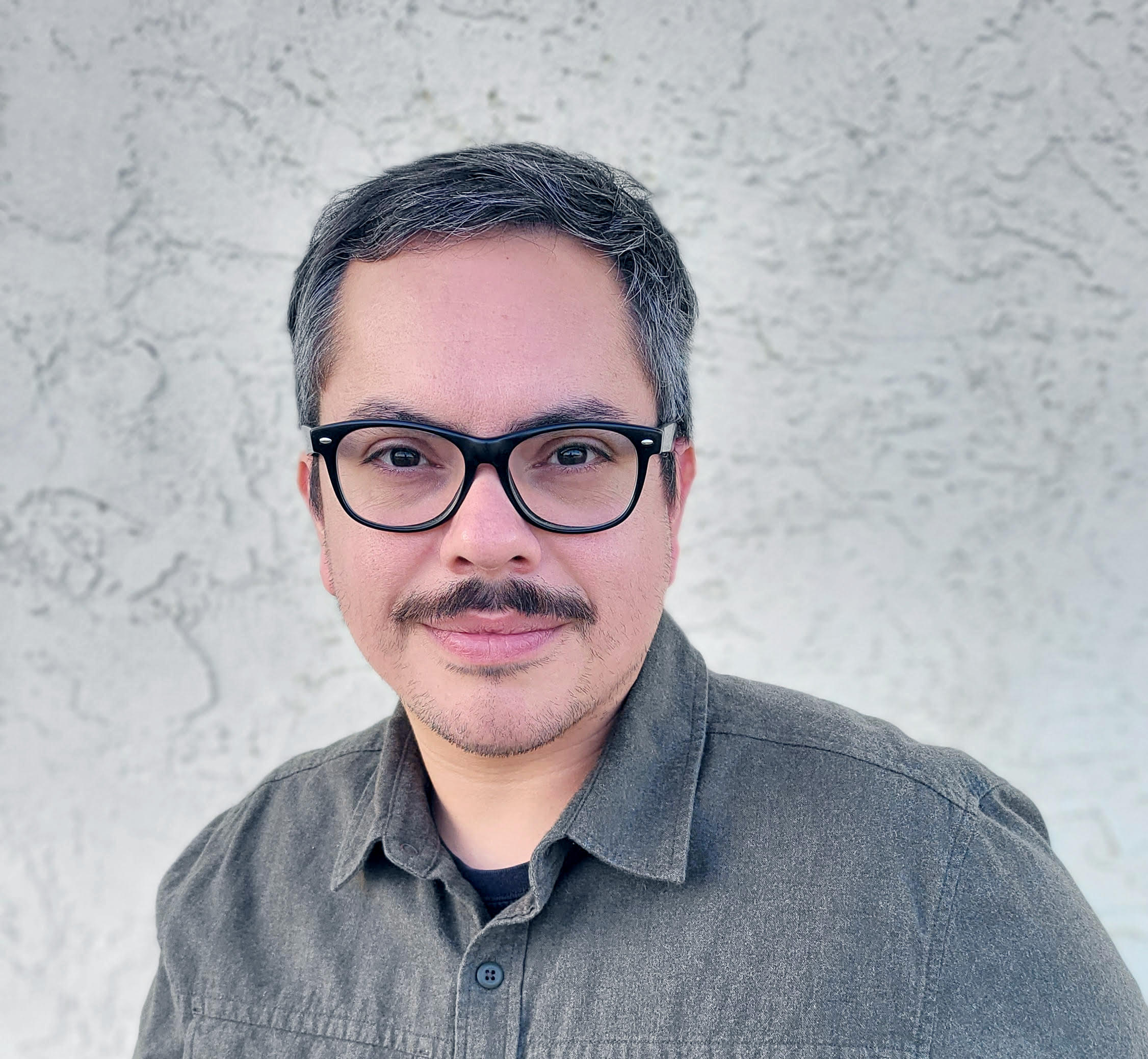 Adrian Carrillo is an illustrator and story
artist dedicated to honing his craft. During the
day, he works with non-profits, providing support
for migrant folks entering the US. He works on his
passions at night, such as making comic books and
storyboards. Adrian Carrillo is an illustrator and story
artist dedicated to honing his craft. During the
day, he works with non-profits, providing support
for migrant folks entering the US. He works on his
passions at night, such as making comic books and
storyboards.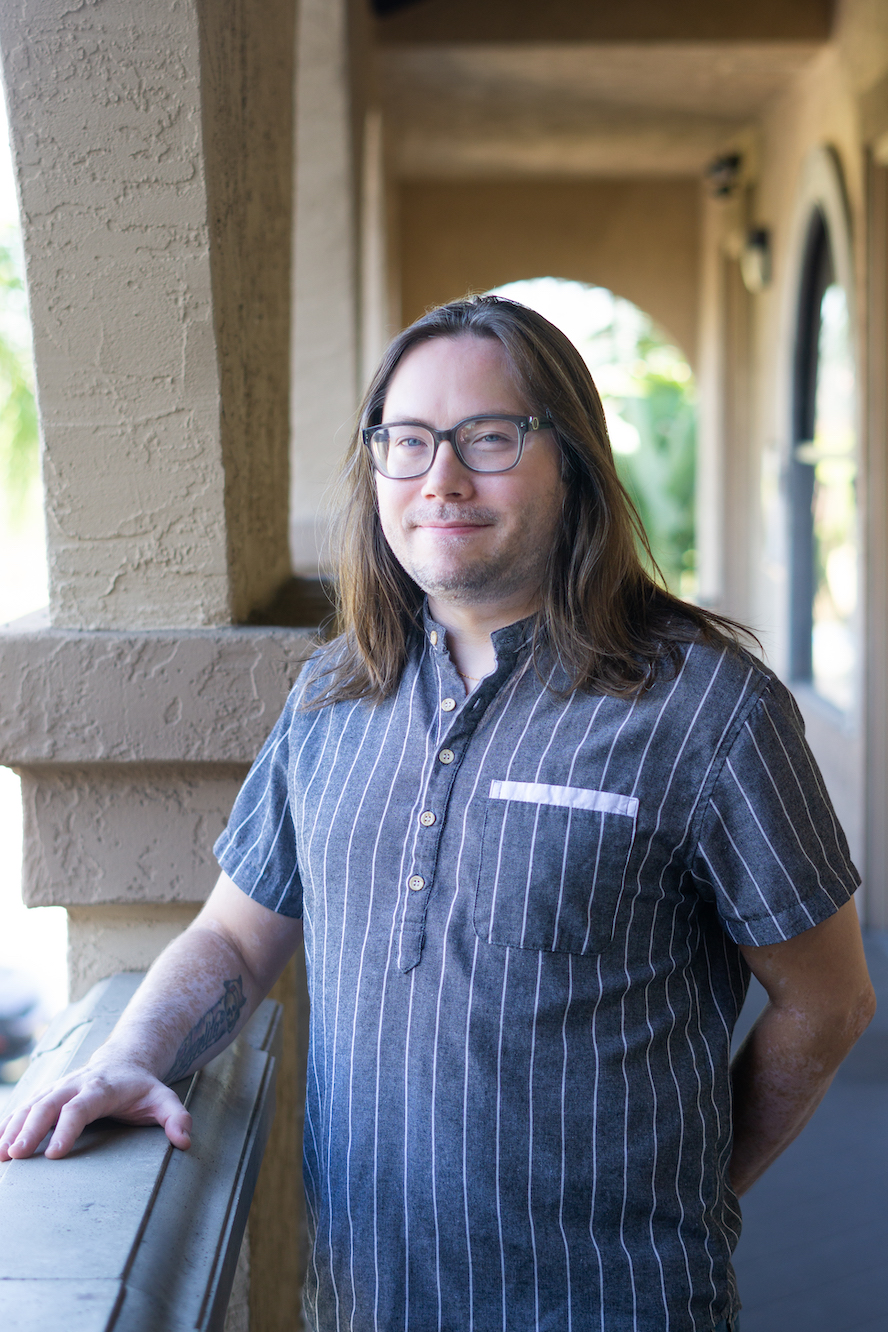 Christopher
Bengtsson holds a BA in
Journalism and is passionate about storytelling in
all of its forms. He is a father, avid comic book
reader, painter, musician, and dungeon master. He
works at an interpreting agency in the daytime, and
at night, he writes comics and fiction." Christopher
Bengtsson holds a BA in
Journalism and is passionate about storytelling in
all of its forms. He is a father, avid comic book
reader, painter, musician, and dungeon master. He
works at an interpreting agency in the daytime, and
at night, he writes comics and fiction." |
||||||||||||||||||||||||||
| Wednesday, April 10,
2024 Extra class -- not a course requirement but certainly a life requirement!
|
||||||||||||||||||||||||||
| Thursday, April
11, 2024 Dr. Carlos Kelly on Latiné and the world of video games! 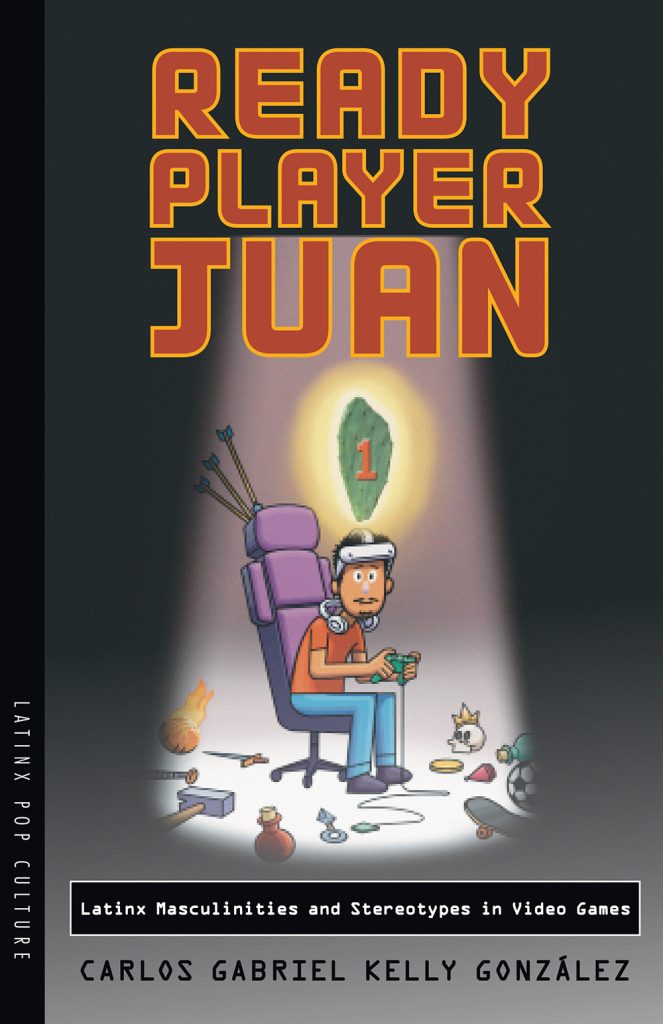 Today's lecture
includes a presentation on Latinés in video games;
an overview of Ready
Player Juan; an analysis of Uncharted and Tomb
Raider; current work; and the future of
video games. We can have a general discussion
and then Q&A. Your link to the introduction and
first chapter of Dr. Kelly's outstanding book live here.
Dr. Carlos Gabriel Kelly González (known to students as Profe) specializes in US Latine media studies and critical game studies. He is an emerging scholar and one of the few Latine voices working to grow the field of video game studies through US Latine perspectives. He works to infuse Latinx ways of seeing into video game studies through borderland perspectives and lived/embodied experience. Carlos earned his Ph.D. from the Ohio State University and is on a Postdoctoral Fellowship in Latinx Arts, Literatures, Cultures, or Religions at the Humanities Research Center at Rice University. He will join his colleagues in the English department at Kennesaw State University as an Assistant Professor in Fall 24. His book Ready Player Juan: Latinx Masculinities and Stereotypes in Video Games is the first book to deploy US Latinx studies (via embodied border and performance theory) to interrogate AAA action-adventure video games. Currently, Carlos is thrilled to be co-editing the first-ever collection of Latinx video game studies, Coded Latinx: Latinx Gaming and Game Studies in North America, with Dr. Regina Marie Mills. In addition to his research, Carlos is also a published performance poet with his 2019 debut collection, Wounds Fragments Derelict, published with 2Leaf Press. |
||||||||||||||||||||||||||
Tuesday, April 16, 2024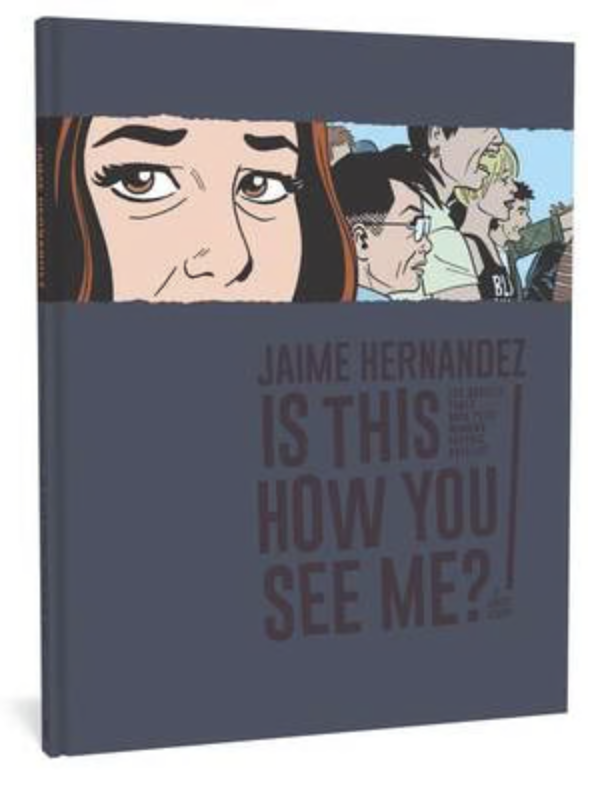 We are
ready for this -- a masterwork by Xaime, aka Jaime
Hernandez, and, in a way the semester has prepared us to
experience this piece at a higher level or, to extend
our guiding metaphor, to probe more deeply the
subterranean nuances of this semiotic/semantic opus. We are
ready for this -- a masterwork by Xaime, aka Jaime
Hernandez, and, in a way the semester has prepared us to
experience this piece at a higher level or, to extend
our guiding metaphor, to probe more deeply the
subterranean nuances of this semiotic/semantic opus. IS THIS HOW YOU SEE ME returns us to a world familiar to some of us and new to others. However, novices and comix addicts alike will be moved by Xaime's comic book novella. Bring to class a print out of a panel from the beginning of the work and a panel from towards the end which, in your view, resonate or interract with each other. Be prepared to write about these two panels in class.  |
||||||||||||||||||||||||||
| Thursday, April 18, 2024 No class today! Catch up on your reading! 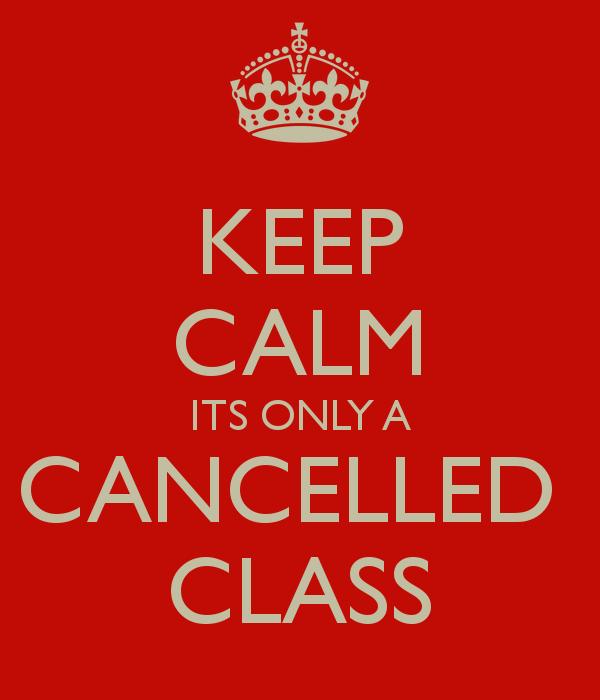 |
||||||||||||||||||||||||||
Tuesday, April 23,
2024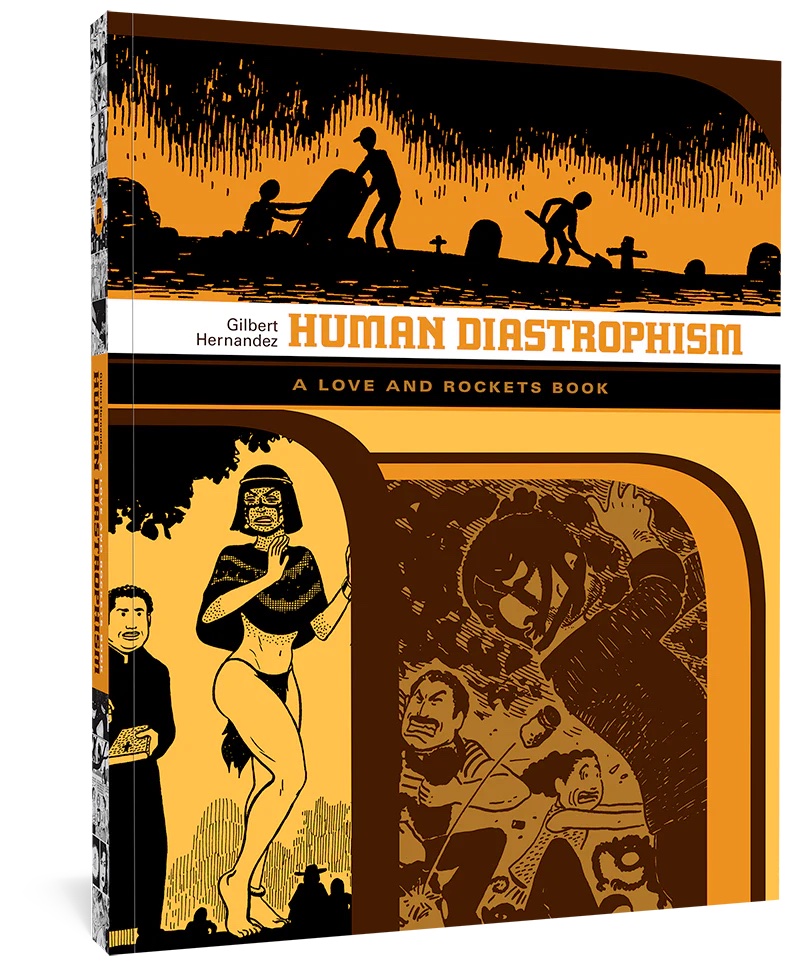 Update:
I am happy to share that the majority of you who wrote
in back to me regarding bumping Gilbert's masterpiece,
HUMAN DIASTROPHISM, from the required book list, are
OK with this late shift. Thx for your flexibility. Update:
I am happy to share that the majority of you who wrote
in back to me regarding bumping Gilbert's masterpiece,
HUMAN DIASTROPHISM, from the required book list, are
OK with this late shift. Thx for your flexibility.We walk into class today having thrilled to the complexity and intoxicating semantic and semiotic magic of Gilbert Hernandez's FRIDA, a biographical comix meditation on the work and life of Mexican oil painting icon Frida Kahlo. Read the illustrated biography here before entering our sensual labyrinth, HH 150, today. Also read my chapter on Gilbert and Frida from Tex[t]-Mex, or, if you have not purchased the book (which is totally ok!), read it here, free. The first part of class will be taken up with screening Carla Gutiérrez's new documentary entitled FRIDA. Read a recent story on it here and an interview with the documentarian here. I was floored the first time I screened the documentary, available via Amazon Prime here. A blend of traditional documentary, animation, CGI, and more, Gutiérrez's opus unfolds as a visualization of Kahlo's artistry and a subtle and suggestive meditation on the connection between art and life. We may all feel we know Friday, so saturated is popular culture with her visage, with reproductions of her art. Happily, Gutiérrez refreshes our world view, allowing us to encounter Kahlo in a new light--moving, tragic, funny, sexy, and more. 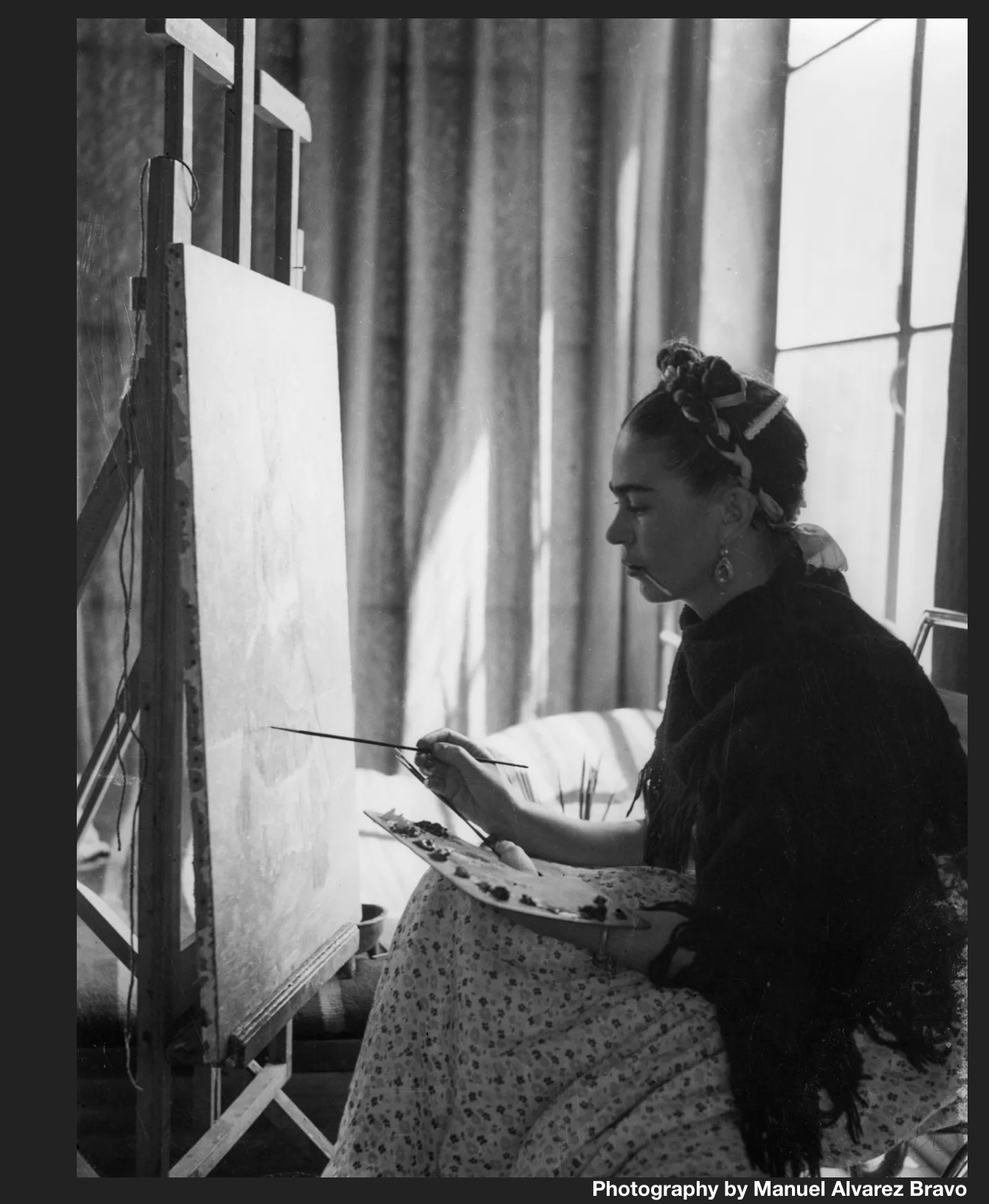 |
||||||||||||||||||||||||||
Thursday, April 25, 2024 We finish screening FRIDA in class today and continue our discussion of the overlaps between Carla Gutiérrez and Gilbert Hernandez's projects. Consider the benefits and drawbacks to telling Friday's story via comics and via documentary film. |
||||||||||||||||||||||||||
Tuesday, April 30,
2024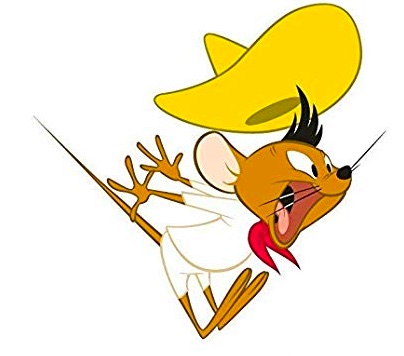 We began the semester watching cartoons and we end it the same way! As we brace for the final in two days we will watch cartoons -- Speedy Gonzalez cartoons, to be exact. Also enter the room having read my Speedy chapter from Tex[t]-Mex: Seductive Hallucinations of the "Mexican" in America. If you don't want to buy the book, find a free version of my Speedy piece here. |
||||||||||||||||||||||||||
| Thursday, May 2, 2024 Last Day of Class -- In class Final Exam.  |
||||||||||||||||||||||||||
 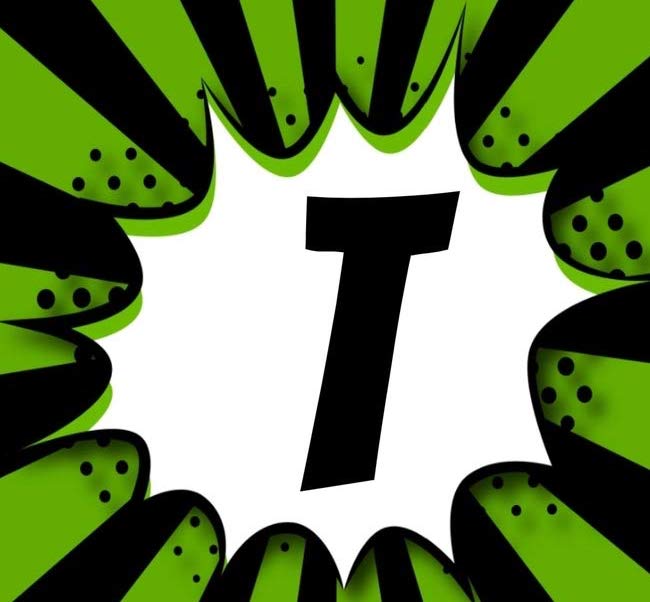 his is a university-level
course in comics, literature, film, art, and the
internet--as it is thematically focused on issues of
representation, subjectivity, psychology, and sexuality,
it should not come as a shock that students in the class
may, from time to time, encounter characters, ideas,
situations, images, language, and scenarios that make
them uneasy. his is a university-level
course in comics, literature, film, art, and the
internet--as it is thematically focused on issues of
representation, subjectivity, psychology, and sexuality,
it should not come as a shock that students in the class
may, from time to time, encounter characters, ideas,
situations, images, language, and scenarios that make
them uneasy. WELCOME TO THE UNIVERSITY! The antithesis of a place of worship, the flipside of a space dedicated to faith and belief, the university is a site of questioning--a sacred space of critical thinking, skepticism, cynicism and irony. So open your eyes, jump-start your mind, and prepare to enter the choppy corridors of the always already evolving world of comics and history. 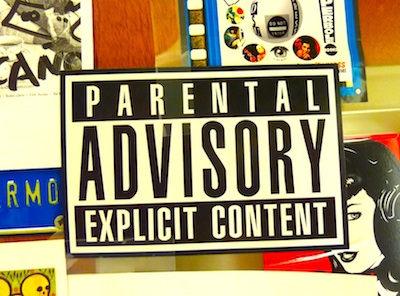 |
||||||||||||||||||||||||||
|
Cool Sensual
Labyrinch wallpaper by Danist Soh on Unsplash
|
||||||||||||||||||||||||||